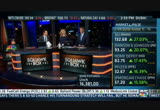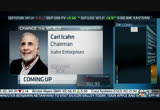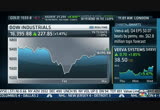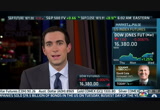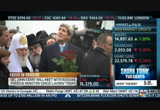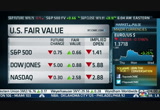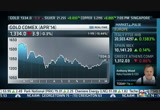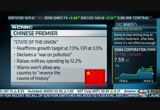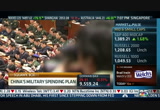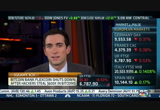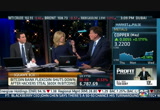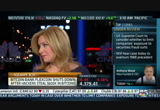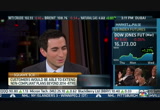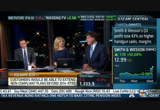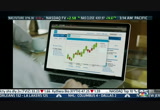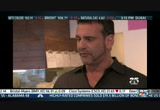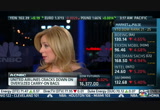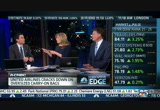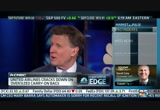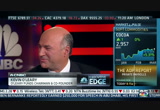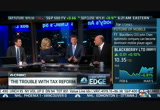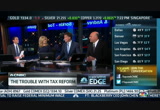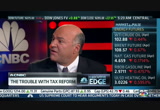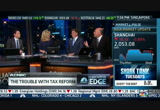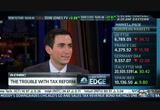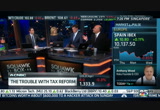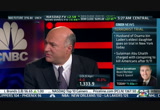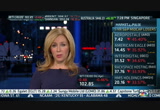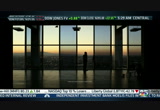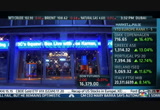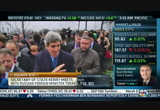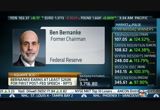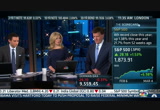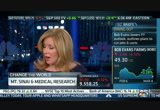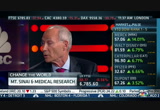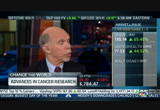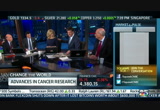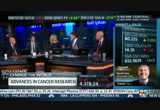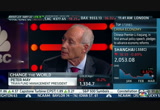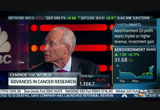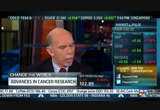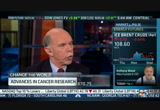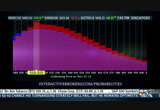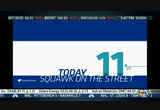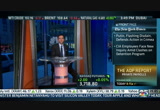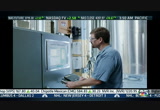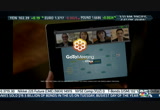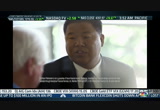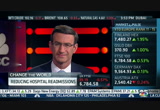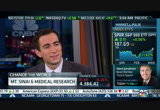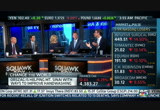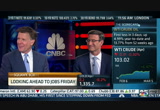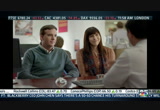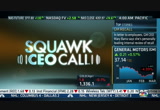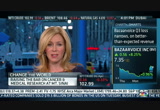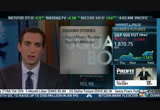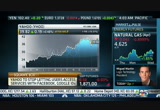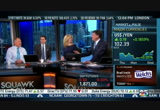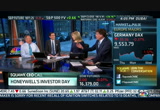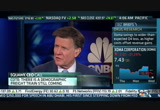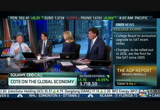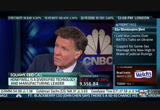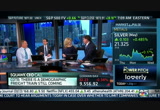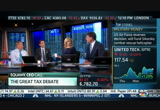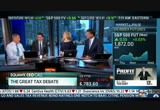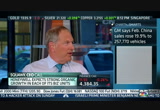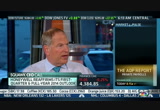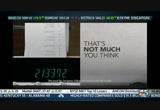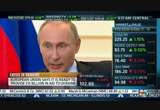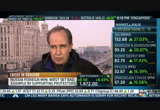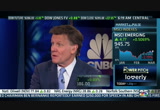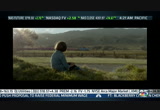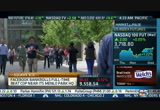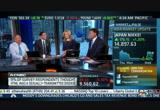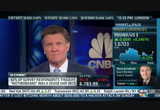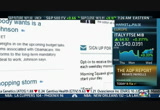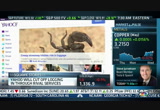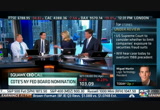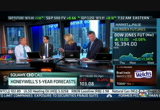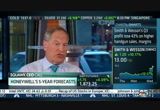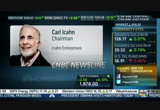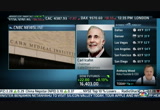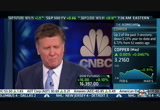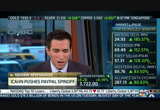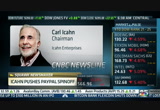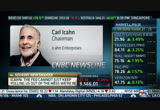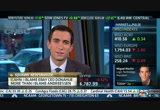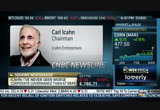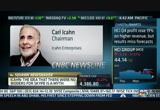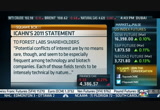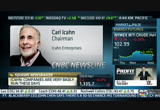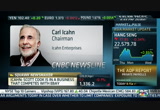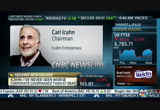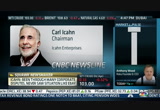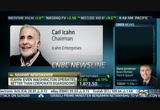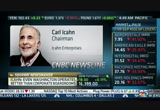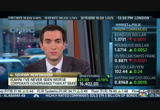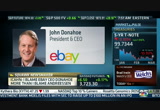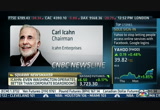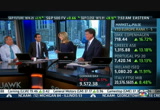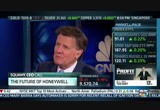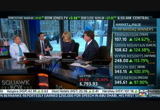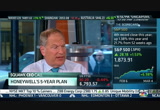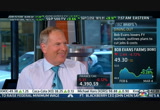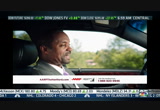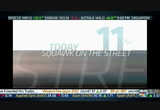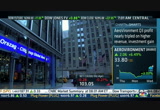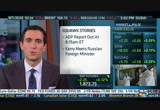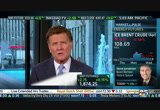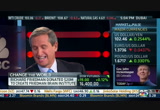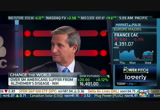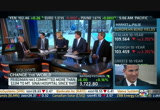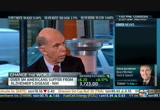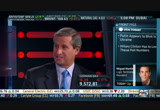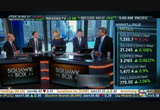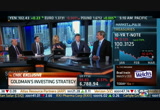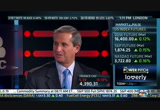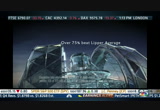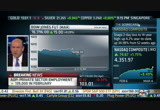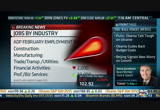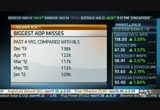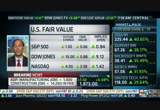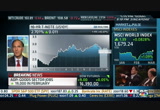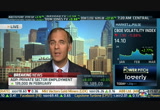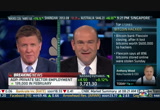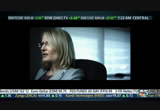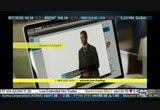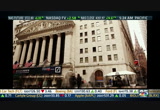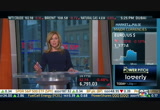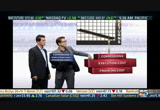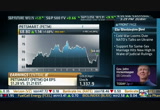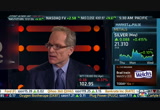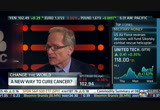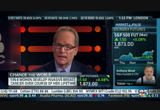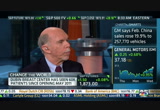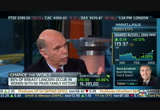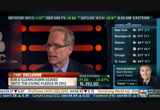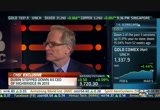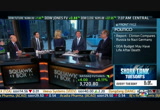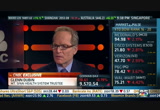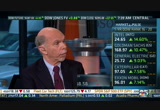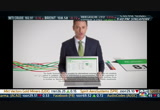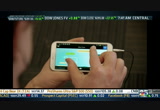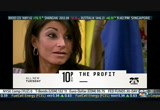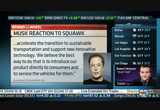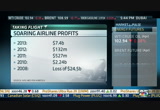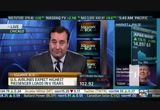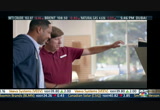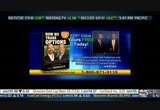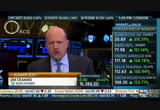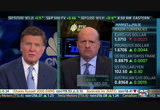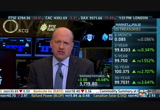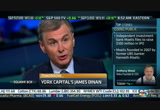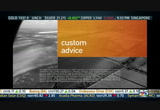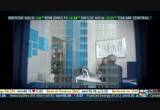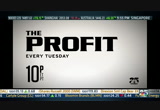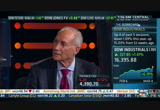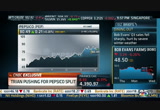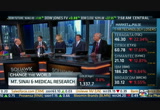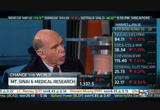tv Squawk Box CNBC March 5, 2014 6:00am-9:00am EST
6:00 am
good morning, everybody. i'm barack obama along with joe kernen and andrew ross sorkin. we are live in new york city for a change in the big event. some are using the bar on if a lon three pea to raise awareness in the health care system and mt. sinai. here is our lineup this morning. dr. kenneth davis, the ceo of mt. sinai. peter mayo, peter orszag, richard freedman of goldman sachs and glenn dupin. plus, carl icahn will crawl in before the end of the show. stay tuned to for that. we also have honeywell holding its investor conference this morning.
6:01 am
but david cote will be rolling out its plan phenomenon honeywell's futures to us. good show this morning, guys. >> if you change the world, you have to get all spruced up. >> everyone is wears coats. >> spruce goose. >> a lot of money we're going to talk about. >> there is. >> we've got a whole becky back there, a lot of private equity guys, fat cats. >> it will be okay. we're going to take a look at the markets this morning before we get started. check out the u.s. equity futures. after that huge gain from yesterday with the dow up 127 points, you can see the futures are flat, unchanged this morning. of course, yesterday everything happened because of the easing tensions in ukraine. russian president vladimir putin said he would use force only as a last resort. they gave no sign of pulling back military forces from ukraine's crimen peninsula.
6:02 am
yes, joe, finally, finally, finally. >> it was there and it pulled back. nobody likes ukraine. but lately, the market has gotten back more than it's sold off. when we have a lot bit of a break, and then all we had was an easing of tensions. the market makes up more than the lost on the way down. >> you can invest for a day. >> the long-term investors. you were ready to run for the hills at the slightest things happening. >> the market is overvalued, right? sort of. at this point, don't you think it's gotten ahead of itself? >> having just been on the west coast in the tech world maybe. how about that? >> oh, okay. >> can i say that? >> maybe so. >> speaking of, take a look at the nasdaq. it was up by 1.75% closing at 4,351. >> the economic calendar heating up today. the rest of the week leading up to friday's jobs report. the adp jobs report will be out
6:03 am
today, 8:15 a.m. eastern time. economists are expecting 160,000 private sector jobs were added to the economy last month. that is the number to beat. later, the ism nonmanufacturing index is expected to fall to 53.5 from february, down from 54 in december. and then, watch this at 2:00 p.m. eastern time. we're going to get a feel for the current overall economic conditions in america with the fed's beige book. you know, just because of the color, i never thought -- can they come up with a better name? >> beige book? >> i don't know. >> it could be taupe. i'm sure it's interesting. something more -- >> alliteration]. >> beige is so boring. u.s. secretary of state john kerry will be meeting with the russian foreign minister today. the first face-to-face meeting. >> did he have a name? >> john kerry is his name. >> sergei lavrol.
6:04 am
>> the two top dip low mats since tu crane crises ka lated. sergei lavrov speaking earlier today to reaterm his country's position. >>. >> i'm ex as perforated with that. i love cate blanchett. anyway, check out the futures this morning. what a day. every time you thaw it was goth was going to pull back, it didn't. the s&p on a relative basis seemed even stronger.
6:05 am
we needed to get back. i think we were 10 below. measuring everything from december 31st, like 10 below, and i forget that it was back like 1840, we got back 30 of it or something. let's check out the oil, which we don't want oil to get too out of hand on what's happening here because we're hoping for 3% gdp growth this year. and any big spike in oil makes you think that's a tax on consumers and it's harder to get. the ten-year is helping, though. in terms of keeping the housing markets going below 2.7%. the euro stayed remarkably strong for europe. basically being on the front line for this situation here. we will, after hitting some new lows, stabilize. and then finally, fwoeld, i think, traded lower yesterday after having really a great quarter, at least two months. so it's down about $4 today at 1334. and china's leaders reaffirmed the growth target of 7.5% but
6:06 am
signaled some concerns about reaching that target. eunice yoon joins us now. we're in a great big city this morning, eunice, tossing to you over there. we're feeling very -- i don't know. we're going to change the world. >> you are. i think that's how people here feel, as well. there were thousands of lawmakers that were gathering together in beijing to heir china's version of the state of the union. this is presented by the premier of the country and it's really the first time that investors got a chance to see what the economic priorities for the year would be. now, the main focus was on the targets, as you had said. the growth target was reaffirmed at 7.5% to the reinflation target at 3.5%. that suggests that the government is more comfortable with a slower rate of growth than previous years. a lot of the discussion today has been about that 7.5%. because this is really -- you
6:07 am
know, for years, we've seen the target act more as a floor on growth than anything else. but now, for the first time, we're seeing that the target actually being considered a real target of growth. so that was one thing that was an interesting shift that we saw today. another point that was interesting was the fact that the chinese premier seemed to focus very much on the costs of economic growth. he's declared a war on pollution. also the administration said they were going to look for ways to help the local government better manage their debt. they said they could actually -- they're studying ways to see whether or not local government committees sell bonds. another interesting highlight, the military spending is going up by 12.2%. this is the biggest increase in three years. and it comes along with some comments that really unnerved people over here when the
6:08 am
premier warned that china would not really stand for any country reversing the course of history. and it's been seen as an oblique reference to japan and possibly to the united states because many countries around the region having increased concern about what they say as a rising -- an assertive china in the region. >> thank you, eunice yoon. appreciate that report very much. we've got another story by the way, twice. we start with nonstocks and it only get worse because bitcoin bank's flex coin is now shutting down after an attack. it's a value of about $600,000. but the company said it didn't have the assets or resource ones to come back from the loss, so it's gone. mt. gox is gone. and the idea, we always thought
6:09 am
this was so safe. >> look, there is the point that andrew and others have made that you're not talking about bitcoin itself being faulty. you're talking about what are essentially banks or brokers that haven't been able to maintain security themselves. so for the average investor, if you're thinking about getting into this, it raises a lot of questions. >> if you want to sound like the eo system is what it's all -- the ecosystem. and i like to -- the ecosystem still has some bad actors in it. once you clear out that ecosystem and get them out p what i didn't understand, i didn't think they could be missing in the first place, so how could they be missing? can't they give me like a chuck e. cheese leftover token?
6:10 am
i have those. why don't we make chuck e. cheese the physical bitcoin? >> there is a guy last week, a story about him that prints out his bitcoin codes. >> you have a code and that's the -- >> okay. but some people print it out and they'll rip it in half and put half in their wallet and store half somewhere else so you can't steal it. >> this is 2014. it's so much better than actual dollars. >> would it work if jpmorgan was storing the bitcoins, would they do it right? is it the fact that -- >> it sounds to me like they don't have the proper cyber security. and so somehow somebody hacked into it and stole it. you have to think not only about bitcoin itself, but then about which brokerage or bank or other organizations you're doing business with if you're storing it there. >> so all your bitcoins are
6:11 am
gone, jeff. >> yeah. what is all that about? what do you remember? >> oh, it's about delaying. >> delaying parts of obamacare. that's according to a report from reuters. consumers that don't meet the affordable care act standards may be able to sxland expand their plans beyond 2014. all of these delays are about not meeting the number that the government needed by certain dates and you keep extending how long it takes. you know, i would have liked this in college, like for assignments, if i could -- you know, something is due on a certain day. well, this happens, this is happening, this is happening. >> i'll get my homework. >> this would avoid another -- i used that a couple of times. >> you didn't have a dog. >> avoid another round of kag
6:12 am
ca cancellation notice eggs. you may remember the uproar last fall over the cancellation notices for plans that didn't meet the standards. those are people that already had plans. we've the still got a problem with a lot of the people that have signed up already had plans. it's unclear yet whether anyone that didn't have insurance is signed up to this. >> something we can talk about. >> it's going to be interesting. >> we can talk about today because we have people here from mt. sinai that can weigh in on it. >> our host is on board with a lot of this. >> although, you know, he's in private industry now. i don't know that this is the most persona nongrata at this point. >> he was a fan.
6:13 am
>> he did say that one thing at that one time. >> it was when he first left, he wrote an op-ed to the "new york times." >> upset a lot of people. >> it was questioning some of the numbers that the administration just put out. this is a guy who is a numbers guy. >> goldsby said when he was in canada, all the locks were changed on his office, boxes outside. >> that was during the election. next stop, we're going to bring the shark tank to the set. and if you're planning on flying united airlines -- man, oh, man. >> double chick the side of your carry on.
6:14 am
check your bags. >> check your bags. >> we'll talk after the break. >> don't inconvenience me because you don't want to wait in the baggage claim, sorkin. we'll have that story, next. tdd# 1-888-628-2419 searching for trade ideas that spark your curiosity tdd# 1-888-628-2419 n take you in many directions. d# 1-888-628-2419 you read this. watch that. tdd# 1-888-628-2419 you look for what's next. tdd# 1-888-628-2419 at schwab, we can help turn inspiration into action tdd# 1-888-628-2419 boost your trading iq with the help of tdd# 1-888-628-2419 our live online workshops tdd# 1-888-628-2419 like identifying market trends. tdd# 1-888-628-2419 now, earn 300 commission-free online trades. call 1-888-628-2419 or go to schwab.com/trading to learn how.
6:15 am
tdd# 1-888-628-2419 sharpen your instincts with market insight from schwab tdd# 1-888-628-2419 experts like liz ann sonders and randy frederick. tdd# 1-888-628-2419 get support and talk through your ideas with our tdd# 1-888-628-2419 trading specialists. tdd# 1-888-628-2419 all with no trade minimum. and only $8.95 a trade. d# 1-888-628-2419 open an account and earn 300 commission-free online trades. call 1-888-628-2419 to learn more. tdd# 1-888-628-2419 so you can take charge of your trading.
6:17 am
welcome back to "squawk box." time now for the executive edge. if you're flying united airline ones, the airline is cracking down on passengers with carry on bags, sending some back to check in baggage. i have to admit some guilty here. my gamble is, i will get to the end of the -- >> gate check. >> gate check and then they'll gate check it for free. >> and you don't have to wait in line. but i'll hate the people that do that because the airlines are now so full, they're completely jammed, and you spend an extra 20 to 30 minutes to get people
6:18 am
boarded and get down the aisles because there's no space and there's no space in the back and -- >> you have a suit in a banging bag and then you have a carry on -- >> but i see people struggle b, they're trying to get -- and i know why they do it. back seat thlt of times why i mist a golf club. i usually have to check the baggage claim. i probably would like to carry the small ones. i had some problems. newark airport is notoriously bad with getting luggage out in time. i hope they're not watching. >> if you're going to jacksonville, by the time you get to baggage claim, it's there waiting. and they've lost my luggage twice. >> if you're making a quick day trip -- >> i know, but -- >> it's literally about the convenience of -- >> but the guys who do that are the ones -- i've had crowded
6:19 am
flights where people bring the bags on and we've missed our flight to check off. you are there by inconveniencing the entire plane. check your bag. >> if you're flying business class inch? >> i wish they would charge everybody for checking at the gate, too.i wish they charged you double for charging at the gate. that would make people go ahead and check in. charge double at the gate instead of free baggage checking. >> flying is stressful for some reason, whether it's the air and waiting in the terminal and people get on my nerves even more than they normally do, which is saying something. is this our executive edge segment? >> we are in -- >> what happened to talking about mp3 the, the little guy from star wars? >> c3po? >> like r2-d2?
6:20 am
>> you have to read that. there's a couple other really funny ones that i laughed. there was only 27%, but you've got to look. it's like, you're kidding, that's what you thought that was. >> jay says we're doing them later. >> oh, twel? last night's episode of "shark tank," we have the go found er here, author of the media say that to me, too, and i take that at face value. what are they saying there? >> the key is to always tell the truth and you, too, can be mr. wfl. but i do that. >> then you deserve a
6:21 am
nomenclature. that's it. >> the last time you were on, we got a lot of feedback about taxes and all kinds of things. and i found myself, just to be devil's advocate, arguing your side of things. >> we've got a lot of private equity guys here today, so i tell will be a topic. >> the president unveiled a budget bill. >> i think it's great we're having it because i think l are tilt force -- think about tax overall. do you believe when people are taxed and that money goes to the government and is redeployed to the government, is that an efficient way of doing it? what percentage do you think of a $1 trillion tax high is completely wastesed by the politicians that are in a two to four-year cycle? >> if people like us with kb average people are paying 40% and guys that are really making dough are paying 15%, that's
6:22 am
causing some -- you know but if i could do 15, i -- anything that keeps money in the sector is good overall. i'm just asking the soul searching question, does it really make sense to take it out of the economy and put it through the incredibly inefficient process. it's some percentage. when you're tacking about a trillion dollar tax hike, you're wasting billions and billions of dollars. >> you're operate autoing this country, going to some of the public schools, benefiting from all the stuff that impacts the paperwork here and is you're benefiting more. you've got the ability to -- >> no, no. you're 100% rite. i don't think anyone at this
6:23 am
table anyone i know thinks the government is proficient. >> given that you have this mess of a thing, how does everybody contribute to and -- >> look to the state. individual states are saying give me more for myself to run my state the bay i want to. let me make the environment such that i can promote jobs in my own state. i don't need the federal government doing this for me. >> but i think you need to look at the entire tax code. do you realize -- >> but you shouldn't be paying 15% when people making less than you are paying a higher rate. >> but if i --
6:24 am
>> that nibt be the case for you. you pit it in harm's way, you're investing it? >> that's another way to say it. >> depending on what you're doing could be putting it in harm's way to lose it. >> put in bitcoins. >> but when you're putting other people's money in harm's way, this goes back to what we talked about before, as the private equity manager, why is that -- why is that the not a commission oriented business? >> when you see somebody make $500 million of which a large portion of it is in carried pictures. that's what private equity is. i redeploy it all the time. i'm constantly buying new deals. why would you want me to stop
6:25 am
doing that? >> it's not a matter of punishing you. it's a matter of giving you special status. and i'm not arguing that you -- >> oh, no, i'm going to a different level. i'm saying corporations should pay no tax at all. >> no, we know that. >> you're talking about carried interest, as well. any capital that is rebe provided if you want to put it in different product tur. but you're want to start in another argument. >> becky, i'm like you. i started with nothing, nothing. i worked hard to get to where i am. >> and you worked hard, but the same thing with me. look, i've on worked jobs autos a waitress, i've done a lot of things. >> you didn't build that business. >> i did.
6:26 am
and listen, i'm proud to say i did. >> but it doesn't mean that you should pay less thanss tab everybody. i wish we had a much more simple tax code to stop this. >> is it redeployed in the economy creating jobs? if the answer is yes, don't tax it. >> one nienl question. when you think about it, if that can't happen. >> that's true. weir phiing the debates. i think there will be a lot of dut about this issue. i don't think that whooer trying to do is working. do you think it's important for me to pay $450 thoous versus you
6:27 am
paying $2%. you could argue that's great jobs. >> absolutely. how many people guilty that plane? >> great to have you on today's show. if you were to make up the difference in the people that a are, you know, did he corporation, and it's a zero sum game so that the corporations become more -- you've got guys like -- >> and looking back on the vilification of success, that's what i'm doing. >> but it's not the vilification of success. >> yes, it is. >> you're trying to say you should pay a third of what other people do who make less money than you. all i'm talking about is a more equitable of tax code. >> i'm saying redeployment of jobs -- >> whikt out and spending money, i should only pay --
6:28 am
>> would you like to see your tax go down? >> the game in general, it would be as much money as you could need to create jobs in the private sector. >> why would carries interest change the outcome for you? that's the biggest question. >> i'm trying to point out to you that all the carries interest given to all the managers, the entire amount, 99% of it is redeployed into the economy. >> 99% of somebody something makes minimum wage is redeployed. >> some of them $200,000, $3 the,000. >> when at the doing. in when we doc back, dr. royal,
6:29 am
dr. davis and mr. may will be kicking off our change the world special. and at 7:00 a.m. eastern time, dave cote ahead of his company's investor day. plus, investor carl icahn will be calling in before the end of the show. we don't even know what time. >> did he set his alarm clock, andr andrew, are you sure? built for your company. your customers. your... sales department built from the ground up. for fast downloads. fast uploads. for a... built for tablets. for laptops. for... this. built for saving money. built for saving time. built for architects. built for... sign up for internet and voice and find out how to get four weeks of internet for free. comcast business. built for business. but with less energy, moodiness, and a low sex drive, i had to do something. i saw my doctor. a blood test showed it was low testosterone, not age.
6:30 am
we talked about axiron the only underarm low t treatment that can restore t levels to normal in about two weeks in most men. axiron is not for use in women or anyone younger than 18 or men with prostate or breast cancer. women, especially those who are or who may become pregnant, and children should avoid contact where axiron is applied as unexpected signs of puberty in children or changes in body hair or increased acne in women may occur. report these symptoms to your doctor. tell your doctor about all medical conditions and medications. serious side effects could include increased risk of prostate cancer, worsening prostate symptoms, decreased sperm count, ankle, feet or body swelling, enlarged or painful breasts, problems breathing while sleeping and blood clots in the legs. common side effects include skin redness or irritation where applied, increased red blood cell count, headache, diarrhea, vomiting, and increase in psa. ask your doctor about axiron. phone: your account is already paid in full. oh, well in that case, back to vacation mode.
6:31 am
♪boots and pants and boots and pants♪ ♪and boots and pants and boots and pants♪ ♪and boots and pants... voice-enabled bill pay. just a tap away on the geico app. ♪ huh, 15 minutes could save you 15% or more on car insurance. yup, everybody knows that. well, did you know that some owls aren't that wise. don't forget about i'm having brunch with meagan tomorrow. who? seriously, you met her like three times. who? geico. sometimes they just drop in. always obvious.
6:32 am
6:33 am
good morning and welcome back to "squawk box" here on cnbc. i'm joe kernen along with becky quick and andrew ross sorkin. we are in new york city this morning, scratching and itching for a special change the world event. i'm trying to talk a little better in here, andrew. am i doing okay? >> you're doing just fine in the big city. >> welcome to -- must be all those cabbies. >> oh, my god, that was the prettiest cab. anyway, we're going to bring together some of the biggest names in the financial world to promote cancer research at mt. sinai health systems. we're going to get into all that in a few minutes. but first, there are some headlines today. it resolve around ukraine. secretary of state john kerry is in paris to meet with russian foreign minister sergei lavrov. they're going to discuss the situation a day after the secretary of state visited kiev. the foreign minister is in
6:34 am
paris, as well. it's unclear whether he'll be part of the meeting, though. the diplomates are all in paris because of a previously scheduled conference involving economic aide to lebanon. and an international airline deal could be in the works. the australian government rejected a request by qantas for ads 2.7 billion loan. instead, it said it would lift foreign ownership restrictions. the airline posted a first half loss and recently announced 500,000 job cuts. more upbeat financial news. >> you asked the question. >> i did. >> i said 200. >> i'm thinking 250 or more. he was paid at least $250,000. what the hell does that mean? that means anywhere between 250 and five, doesn't it? >> 250 and infinity.
6:35 am
250 and beyond. >> a lot of service to the country for a long time, so we don't -- >> i don't be grudge him for a second. this guy, for my money, can go get as much money as he wants and keep it all. >> buy decent suits, you know? no, he looked type. but it look better now. some day, you can have a thing right hue. you go with the no -- straight across is the way gq. people would lie to have the big -- yeah, they have no idea what they're doing. so, anyway, 250 for a speech he gave in abu dhabi yesterday. that's more than he -- oh, man. that's more than everything he earned in all of 2013 as fed chairman. it was his first public appearance since leaving his job at the end of january. a lot of people, that's a lot of money opinion. >> it is. >> to say that he only made 250 is -- >> he's somebody who toiled and really worked under some difficult conditions for a long time. >> he was under the impression
6:36 am
that the entire global economy rested with his ability to present money. so that was the mind set that the fed is still in at this point that it's all on them. but there were days when -- there were years past where it wasn't all about the fed. >> although i will say back in 2008 -- >> a lot of people think qe1 made sense. but a lot of people even some sitting on the fed didn't think q2 and qe3 made sense. today, we have highlighting medical research with mt. sinai health systems. we're joined on set by two very special guests. dr. ken davis is the president and ceo of mt. sinai health system. gentlemen, welcome. it's great to see both of you. thank you so much for coming in. >> great to be here. >> i know we've talked a lot about these things in the past. peter, i'd like to hear how you
6:37 am
came to mt. sinai. >> first, let me just say i really appreciate that you're doing this show and talking about philanthropy. one of the things that's really important is all of us who are in the financial world who spend a lot of our time making money have a responsibility to give it back. and i think it's probably highlighting if a lan throwpy in sa show like this is important. i got involved in mt. sinai initially because they saved my daughter's life when she was a newborn. and without the care in the neonatal clinic that sinai gave her, she wouldn't be here today. she's now 47 -- i'm sorry, she's 45. she'll be very upset if i say she's 47. and so i've been involved in sinai from the beginning because i cared in what they did for us. and when i was able to get more actively involved, i did. it's been eighteen credible
6:38 am
experience for me. >> we're going to talk more about what business brings to mt. sinai and other hospitals. dr. davis, you've spoke to us in the past about some exciting research you're doing. you're getting to the point where you can do more targeted genetic research and develop cares for people that we vice president been able to do in the past. >> this is an extraordinary time. the revolution has led to extraordinary measures and it's particularly in consider. >> apparently we shared 60% of the same genes, but you can make it more specific. >> we're taking the humor from people, identifying the mutations in those tumors and inserting them into the flooi fruit fly's geno and then the fruit fly dies. so what we do is use the fruit fly to screen tens of thousands of drugs and find out what
6:39 am
combination might save somebody's life. >> i thought it was like 90% of the geno. >> is it really 16? >> yes. >> but fruit flies, you can figure it out so much faster because of the life span, right? >> because it's a simpler animal. but what's extraordinary is we can use that animal to screen drugs. what you find out is some of the mutations that you might think should be in breast cancer actually are in colon cancer. so a patient comes in with esquire articles and patient zero had colon cancer. >> even on a -- what is this? the 12 point? >> ten-point craig ventor tackled the fruit fly. you see it on the front page almost every day about some of
6:40 am
the advances we're making. sequence the human geno much more quickly than this government project, yeah. >> great. >> and it's going to happen even faster. the real problem now in this kind of work is how much computer time it takes to sequence, to analyze the data from the geno. it can take up to two days. but it's possible with high efficiency chips around the corner that a low energy we might be able to do it in 30 seconds. >> are you surprised that -- given the conversation people are having a decade ago, you know, everyone who said ten years, ten years something is going to happen. and here we are and i would argue skeptically that we haven't gotten nearly as far as we thought we would. >> that's the system, though. we can find out individual things. you're bringing together every discipline that you can and that's what you're going to need to do to understand this wholistically. >> it's very complicated. and andrew is right.
6:41 am
we often herald a great discovery and expecting there goes to be something right over the horizon that's goss going to revolutionize this in some area. >> there will be a quantum leap. something is going to happen and things will flood in. >> and things will move quickly. but in other areas, such as neuroinside it whiand diabetes. >> peter, let's talk about what business leaders like you, it's important for the if a lphilant. what else can you and the others on the board bring to the hospital? >> bringing knowledge and bringing background.
6:42 am
i have this philosophy called engaged philanthropy. it's relatively easy once you've got to a certain point in your career to write a check. it's much more difficult to roll up your sleeves and get involved in doing something. and in an institution as big as mt. sinai, which today's the largest health care system in the new york area, with 6,000 doctors and seven individual hospitals, it's a very complicated business organization. and there are needs throughout it that can use the skills of our board. and we have a very strong board and we are people who are involved in looking at our real estate and figuring out how to maximize the value of things like that or we have a large endowment and we have a number of people who are on our investment committee and have helped us put form screamly well in that area. and then, what we find is that
6:43 am
our trustees get interested in the science. so we've created, i think, 15 institutes that focus on different areas of science, whether it's genomics or personalized medicine or cancer or cardiology or any of those areas. and each of our on trustees, many of our trustees have adopted one of these institutes. not only give their money to it, but get involved and learn about the research and bring some of it hope to help strengthen the organization. >> what does that mean in terms of the efficiency, in terms of what you can get accomplished as the organization? >> this is a very, very difficult time for for academic centers. our margin is forever shrinking. as a provider at the end of the food chain, we find we're under great, great pressure. it is essential that we have the kind of philanthropy that is made possible to give us the margin we need to do innovative
6:44 am
things. >> they need pe guys to pay only 15% so they can have enough money to donate to the philanthropic efforts of new york city. >> that's true. >> should we not change that 15%? >> there's no interest. we have to talk about consolidation. this hospital has more consolidation than just about any hospital around. >> we're doing a little bit -- >> there's a piece on in the journal about i guess money is not going to the young researchers. it's -- onih. >> increasingly difficult for the young researcher to get funding today. >> the guys that are thinking outside the box. >> that's what you really need, if a l
6:45 am
philanthropy funds. >> thanks, guys. we're going to see you in just a little bit. coming up, one of mt. sinai's biggest benefactors and one of the most successful activists on the street. carl icahn will be calling in. does he live here here? >> yes, just up this way. >> somebody could go up there and just roust him. i know he's up, you know what i mean? >> we're looking forward to seeing you. >> send someone up there. i have low testosterone. there, i said it.
6:46 am
see, i knew testosterone could affect sex drive, but not energy or even my mood. that's when i talked with my doctor. he gave me some blood tests... showed it was low t. that's it. it was a number. [ male announcer ] today, men with low t have androgel 1.62% testosterone gel. the #1 prescribed topical testosterone replacement therapy increases testosterone when used daily. women and children should avoid contact with application sites. discontinue androgel and call your doctor if you see unexpected signs of early puberty in a child, or signs in a woman, which may include changes in body hair or a large increase in acne, possibly due to accidental exposure. men with breast cancer or who have or might have prostate cancer, and women who are or may become pregnant or are breast-feeding, should not use androgel. serious side effects include worsening of an enlarged prostate, possible increased risk of prostate cancer, lower sperm count, swelling of ankles, feet, or body, enlarged or painful breasts, problems breathing during sleep, and blood clots in the legs. tell your doctor about your medical conditions
6:47 am
6:49 am
welcome back to "squawk box." the dough dow currently looks like it would open about a point higher. the nasdaq and s&p down marginally. tesla's ceo elon musk is head to go capitol hill to focus on his other company, spacex. he's testifying in a senate subcommittee hearing on national space programs. spacex trying to win business with its falcon 9 rocket. coming up, peter orszag is here. plus, we'll talk about this week's jobs data and the president's budget. we're coming back with a lot more in just a moment. in my world, wall isn't a street... ...return on investment isn't the only return i'm looking forward to... for some, every dollar is earned with sweat,
6:50 am
sacrifice, courage. which is why usaa is honored to help our members with everything from investing for retirement to saving for college. our commitment to current and former military members and their families is without equal. predibut, manufacturings a prettin the united states do. means advanced technology. we learned that technology allows us to be craft oriented. no one's losing their job. there's no beer robot that has suddenly chased them out. the technology is actually creating new jobs. siemens designed and built the right tools and resources to get the job done.
6:52 am
ameriprise asked people a simple question: can you keep your lifestyle in retirement? i don't want to think about the alternative. i don't even know how to answer that. i mean, no one knows how long their money is going to last. i try not to worry, but you worry. what happens when your paychecks stop? because everyone has retirement questions. ameriprise created the exclusive confident retirement approach. to get the real answers you need. start building your confident retirement today.
6:54 am
welcome to "squawk box." into the world of health care from a theoretical perspective that turned out to be totally wrong or the opposite when you were there in practice as a board member. >> lots of things. for example, one of the things i learned as a board member is perhaps the single most important thing you can do to raise your satisfaction scores among people who are in the hospital is improve the quality of food. >> never would have imagined that, you know, sitting. but it illustrates you have to get out in the real world and see an applied setting. it's not surprising if someone is is not enjoying their food, they're going to blame someone, particularly the nurse. >> do you have a view about where we are at this moment? >> again, i think we're doing well on the cost front. deceleration continues and the
6:55 am
coverage is coming along, still not quite what it should be. >> pete we shall how are you using economics to changes how things get done at the hospital? >> one of the things we're working with the hospital on is to try to reduce the rate of hospital acquired infections by encouraging. >> you have to do something multiple times a day, it can get challenging. so the question is how do you encourage doctors you'll harm your patients. that works better than saying you're at risk yourself. their whole variety -- >> we're watching. >> we're watching.
6:56 am
>> i think we're going to see continued kind of eh on the labor markets. and by eh -- >> what's your number? do you want to hazard a guess for us? >> on adp or jobs? >> we'll go with both since they're supposed to be the same but they're not. >> yeah, they're never the same. zm zm >> in the mid-150s. >> you took over 20% of the economy with obamacare, and you came up with better food. >> here we go, every time. every time. no. >> better food and wash your hands. >> you ignore the fact that medicare continues on this remarkable deceleration. >> medicare. >> washing hands is really important, though. i was on the hospital's board for a while. >> complex. we hear about the problem, how big it is. it's food and hand washing. >> make sure your doctors and nurses wash their hands. >> thaw very mucnk you very muc. >> always a pleasure. >> we'll have ken a little bit later in the broadcast.
6:57 am
6:58 am
[ banker ] sydney needed some financial guidance so she could take her dream to the next level. so we talked about her options. her valuable assets were staying. and selling her car wouldn't fly. we helped sydney manage her debt and prioritize her goals, so she could really turn up the volume on her dreams today...and tomorrow. so let's see what we can do about that... remodel. motorcycle. [ female announcer ] some questions take more than a bank. they take a banker. make a my financial priorities appointment today. because when people talk, great things happen.
7:00 am
welcome back to "squawk box." this hour, honeywell chairman and ceo david cody gets the ceo call. the industrial giant about to lay out its future plans for investors. but first, he's talking to "squawk." changing the world. some of the world's power players in finance joining "squawk box" today to tackle cancer. and raise the bar on medical research at mt. sinai health systems. plus, turning economic focus on jobs.
7:01 am
the adp employment report is headed for the markets at 8:15 a.m. eastern time. conquer the morning. conquer the day. "squawk box" begins right now. good morning, everybody. welcome back to "squawk box." i'm becky quick along with joe kernen and andrew ross sorkin. we are live in new york city for a special "change the world" event today. some of the biggest names using philanthropy to raise the bar on cancer at mt. sinai. they're joining us to give back and give their view of the marketplace. here's the lineup. dr. kenneth davis, ceo of mt. sinai. peter may. richard friedman of goldman sachs and glen dubin, co-frowneder of highbridge capital. plus carl icahn calling in later
7:02 am
in the show. we're not sure when. it depends on when he wakes up. dave cody is with us ahead of another big event. honeywell's 2014 investor conference in the city this morning. we'll get to that in a moment. first a quick check on the mark markets. after yesterday's big gains, markets are flat this morning, waiting for their next trading point. we do have adp numbers coming out today, and maybe that will give us a little insight into what to expect with the big jobs number on friday. some of the morning headlines. secretary of state john kerry is in paris meeting with russia's foreign minister to talk about the situation in ukraine. that follows kerry's visit yesterday to kiev. ukraine's foreign minister is also in paris, but it's not clear whether he'll be meeting with his russian counterpart. nbc's jim maceda will join us in a couple of minutes. investors getting a fresh snapshot of the labor market. adp will release its february report on private sector employment at 8:15 eastern time. economists think the u.s.
7:03 am
economy added 160,000 new private sector jobs last month. that is the number to pay attention to. also out today, we're going to be getting the institute for supply management's nonmanufacturing index as well as the fed's beige book. a little bit of news for those of you still play on yahoo!. yahoo! wants users to have their own yahoo! logins in order to access its services. it says it's going to stop letting users access those services like flickr and fantasy sports by using their facebook or google logins. yahoo! says they'll phase in the changes gradually. that's how i get into a lot of the stuff, using my facebook or google password. now i have to get a third. >> i don't have any facebook. i'm not in any of these things. do you have the same password for all of these? >> i used to but i changed them before i got hacked. >> what is your password? >> they say what you're supposed to do is have one password that you use religiously. >> i thought i could get him. i thought i could get you. >> but then you're supposed to put a letter, like if you were
7:04 am
going to do gmail, you could put "g" and then the password or "g" at the end. put a different one for each one. >> you can't do that. >> no, people say that's how -- because that adds an extra layer of -- >> i just write them all down and put them on my desk. >> yeah. exactly. honeywell's annual investor day kicks off in new york city. joining us to talk about honeywell's five-year plan, dave cody chairman and ceo of honeywell international. what do you make? >> all kinds of things, avionics, turbochargers. >> how bad have you seen operations affected by the weirdness that we've had? >> because we have this what i call diversity of opportunity, so i like never being too big in any one thing. >> is this like a management term? >> i made this one up. don't you like it? >> no, i do. i do. >> i think it's pretty darn good. >> it is. >> what ends up happening is
7:05 am
diversity -- >> diversity of opportunity. >> exactly. in our performance materials and technologies business, weather is going to affect that. and plants just swraehaven't be able to run the way they used to. at the same time, in our controls systems like thermostats and others, that business is going gangbusters because of the weather. that helps balance it out. >> for years, dave, people would use you as an example of someone who wasn't on board with the things are really getting a lot better because you weren't seeing it, right? >> yes. >> what about now? >> so far i've been right. >> no, you have. you have. that's why -- you know, i found something you've been right about. i want to focus on that. but, i mean, you've done phenomen phenomenally. any uptick at all in your expectation? >> yeah, the way i describe it and the way we've planned the company is that we can expect the global economy and the u.s. economy to be slightly better this year. than it was last year. and it kind of gets to be the definition of insanity is continuing to do the same thing
7:06 am
over and over again. always expecting a different result. as a country, we're not doing anything any differently. we're just kind of stuck in this stasis. so we keep expecting the jobs number is going to be superb and unemployment's going to start going way down and all the problems are going to go away. and they're not going to because we're really not addressing our issues. >> what should we be doing differently? i'd say fix the debt. >> the debt's still a big one. that's going to be an overriding concern for at least the next two decades. you look at free trade, immigration. >> that's what i was going to ask you. how much of it do we control right here? we can do better if europe and china do better. >> most of it we can control here. there's a lot of stuff that's within our control. we're just not doing it. >> but how much of those things rell -- we always talk about taxes, you and i. how much of it is that, in your mind, relative to immigration, free trade, all of these other issues? >> all this stuff goes together. here's the issue. and the way i've tried to frame it more recently is there's this global economic phenomenon going
7:07 am
on now. and it's called china. and you have high-growth regions. think of it as what people used to think of as emerging markets. today it's about one-third of the global economy. in the next 20 years, it will become half of the global economy. this whole thing is going on out there. and we're in this economic olympics kind of feeling like we're competing with the other americans as opposed to competing with all these other countries. and we need to start changing how we think about this stuff. and if we did and said okay, there's a whole economic phenomenon going on out there we need to compete differently, address debt, infrastructure, math and science education. immigration. i think we'd start looking at these things differently. instead we're competing against the guys who are on the same team as us. it's very frustrating. >> in the past, my memory, i remember certain things. you have broached the tax rate. people think that's crazy.
7:08 am
the left -- >> because they think it's my money. >> right. >> they think it's you. >> it's not. >> they say corporations aren't people. al franken's trying to do something with corporations. they're terrible entities that are intended to destroy the entire world. you know, not thinking maybe some of them create jobs. >> there's always an interesting way of framing his views. >> we had kevin o'leary on. if you hear someone on the left pays you zero, they get incensed. but we are in a competitive world now. we should want our corporations to be able to do better than corporations around the world because we can keep them here and have jobs for everybody. >> i also think we have the biggest market in the world. you want to encourage foreign direct investment, you're going to get piles of it coming into the u.s. if you have the biggest market in the world and they don't have to pay -- >> we could tax you fat cats. we could tax you. >> on distribution. >> yes. >> i think you could end up with a different -- now, there's issues you'd have to work out like pensions own a bunch of it.
7:09 am
but at the end of the day, i think the concept is still right. the lesser you make the burden on companies, productivity and investment and jobs, you end up with a different phenomenon. >> corporate tax revenue is a very small percentage of the overall tax revenue that the united states collects. what is it, 15%? >> $200 billion out of the 2, 2.5 trillion of the overall income. >> can i ask you to weigh in on the carried interest conversation we were talking about last hour? >> when becky said who was coming on today, you gave all these great guests that are coming on. i wanted them to check to see if they were still coming after our conversation with kevin o'leary. we've got them up to 40% at this point. we're going to settle that today. >> i don't care what the rate is. it just should be an equitable rate. >> where are you? go to zero on corporate tax, i get that piece of it. how do you feel about individual taxes and this carried interest debate? >> i'm going to annoy a lot of my investor friends, but i don't get that why certain types of income are different than other kinds of income. and the fact that as a company,
7:10 am
if i buy and sell another company, i'll pay at, like, a 40% tax rate. if i buy a company as an individual and sell it, i'll pay at 20 or 25. i have no idea what the logic is behind that. and it doesn't stop me from buying a company and then selling it later if i think it makes sense. so i just don't get it. i've always liked the idea of make it simple. income is income. and tax is tax. >> bring it down for everybody or go up for the people that are paying less right now? i mean, in general, money that's left in the private sector, it's a better place to leave it. >> i would agree. >> with everything else. >> he's a big advocate of simpson-bowles, though. >> i was intimately involved in the creation of that initial plan. so yeah, i'm very much in favor of it. there's this physical principle called entropy which i've always liked with which says all organized systems evolve to chaos. it was last simplified about 20, 25 years ago.
7:11 am
entropy has kicked in. >> it's not just entropy. it's also the lobbyists can get involved. and if you are a major corporation or someone who has a lot of money, you could influence how the code has changed over that time to your favor. that's the other problem with it. it's not just random entropy. it is lobbyists who have had an undue influence. >> just companies. >> no. the individuals, too. you can look at unions, anybody with money and say that they have had undue influence on that. and that, to me, is the worst part of it. >> yeah. i was going to say something else. i don't remember what it was. >> in the meantime, honeywell's doing well. >> yeah. >> nice plug. what time does the investor meeting begin? >> 9:30. >> it just started right now. >> and the webcast. feel free to jump in. sfwoo wh >> what are you going to tell your investors, what you see with what honeywell is doing right now given the environment guidance, we're still up 10% in
7:12 am
earnings, 3% to 4% in sales. very good leverage. interestingly, when i laid out the last five-year plan five years ago, the reason i did it is we were getting so dissed by investor when it came to what we were capable of believing, and it's tv so i've got to be nice, let's say it irritated me at the time. >> cable, though. >> you can go for it. you're okay. >> so at the end of the day, i got all these questions about geez, nice to see ambitious, aspirational plans. what do you really think you're going to do? i really found that annoying. i said, how many years do i have to do what we said we would? before you believe? well, now they believe because we actually did that five-year plan. despite a more difficult economy. so now there's a lot of anticipation about this year's five-year plan. and what you'll see is double-digit earnings growth for the next five years in a continued slow economy or slow growth economy. >> does that mean 2.5%? 2% to 3%? >> in the u.s., we think of it as, like, 2.5%.
7:13 am
globally, a little above 3.2%, maybe 3.5% if things go really well. you'll continue to see us drive high-growth regions and you'll see us focused even more on software. if you take a look at honeywell, we have 22,000 engineers, more than half of them do software. so even when you think about turbochargers or jet engines, big software component to it. and as a result of that and along with the cash deployment, we've built up -- we're going to generate about $30 billion worth of cash over the next five years. and when you deploy that cash and a lot of it into hopefully into m&a where we've got -- >> i want to talk about that a little later. >> -- it could generate some very good returns. >> that's a good tease. we'll talk about more m&m opportunities in just a bit. when we return, the focus in ukraine shifting to economic talks. we'll get an update from nbc's jim maceda in moscow. carl icahn will talk about his contributions to medical research. much more.
7:14 am
"squawk box" will be right back. tomorrow, hedge fund legend james dinan on the "squawk" set. and then on friday, we'll close out the week with a jobs report. former fed chairman alan greenspan will tell us what the february employment data will mean for janet yellen's federal reserve. keep watg "squawk box" on cnbc. conquer the morning. conquer the day. ok, here's the way the system works. let's say you pay your guy around 2 percent to manage your money. that's not much, you think except it's 2 percent every year. does that make a difference? search "cost of financial advisors" ouch! over time it really adds up. then go to e*trade and find out how much our advice costs. spoiler alert. it's low. really? yes, really. e*trade offers investment advice and guidance from dedicated professional financial consultants. it's guidance on your terms not ours that's how our system works. e*trade. less for us, more for you.
7:17 am
welcome back. the focus in ukraine shifting from troops on the ground to power players chief diplomats. nbc's jim maceda joins us from moscow with more on the situation. jim. >> reporter: hey, becky. well, i think you can feel a sea change in the past 24 hours, and that clearly stems from vladimir putin's comments yesterday that he saw no need for a use of force in ukraine and had no desire to annex the crimean peninsula. and that really has allowed, in my sense, at least, that cold war style military confrontation to take a step back from the brink, if you will. and even though crimea today remains a very tense place with a new report of russians seizing two ukrainian anti-missile posts, i believe, the perception today is really in ukraine, i believe, that it's spinning not towards war but more towards a kind of diplomatic solution.
7:18 am
now, secretary of state kerry's meeting with his russian counterpart later today in paris, sergei lavrov, that's their first face-to-face meeting since the current crisis escalated. no doubt they'll be talking exit strategy. the russian and ukrainian governments are talking on a cabinet level today, and a russian defense official is discussing ukraine with nato members in brussels as well. so this is shaping up relatively nicely and quickly. and in the flurry of all this diploma diplomacy, we're getting a better sense of russia's and the west's end games. washington and berlin on the one hand are pushing this plan that would include international observers to replace the russian or pro-russian forces in crimea. they're asking for direct talks between moscow and kiev and new elections in may. the russians, on the other hand, want to see a return of that ousted ukrainian leader, viktor
7:19 am
yanukovych. he would head a national unity government and the new elections wouldn't be in may but in december. there's obviously a big gulf between the two sides, but at least they are talking again. but if that doesn't work, becky, don't expect to see russia's forces pulling back from crimea any time soon. back to you. >> jim, thank you. that is certainly what we've seen play out just with the market reaction as well. they seem to be following your lead with that. that is jim maceda joining us from moscow. you saw maureen dowd over the weekend, bush versus clinton, saying that that's going to happen. years from now, it could still be another bush. george p. bush won in texas. >> he did. >> good for texas. he's a guest host that comes on. we need him to come now. he won. coming up, more from honeywe honeywell, chairman and ceo dave cody, who looks really happy, right? >> i generally am. >> today is a good day. >> right. >> and later, a rare interview
7:20 am
7:21 am
geico motorcycle. see how much you could save. [ girl ] my mom, she makes underwater fans that are powered by the moon. ♪ she can print amazing things, right from her computer. [ whirring ] [ train whistle blows ] she makes trains that are friends with trees. ♪ my mom works at ge. ♪ became big business overnight? ♪ like, really big... then expanded? ♪ or their new product tanked? ♪ or not?
7:22 am
what if they embrace new technology instead? ♪ imagine a company's future with the future of trading. company profile. a research tool on thinkorswim. from td ameritrade. a research tool on thinkorswim. so our business can be on at&t's network for $175 a month? yup. all 5 of you for $175. our clients need a lot of attention. there's unlimited talk and text. we're working deals all day. you get 10 gigabytes of data to share. what about expansion potential? add a line, anytime, for $15 a month. low dues, great terms. let's close! new at&t mobile share value plans our best value plans ever for business.
7:23 am
irnlts welcome back. facebook has a full-time cop on the beat. the menlo park city council unanimously aaccepting the offer to pay $200,000 a year for three years to hire a community safety police officer. they'll earn a salary of $108,000 per year and be tasked to help out school campuses and large businesses in planning security measures. the officer will be stationed about a quarter of a mile from facebook's headquarters in the bell haven neighborhood, a relatively poor section of menlo park. the police commander says once facebook gives the money, the company will have nothing to do with the hiring of disciplining of the officer. and i just wonder whether we're going to get into a new world where companies, dave, are going to decide that you're going to have to pay for the cop ts that are around your -- not just security. taxes, i know, but this could change the beginning of the dynamic. it's sort of a very strange
7:24 am
thing to do. >> i have not thought much about it. >> isn't that a strange story? >> i haven't thought much about it either. it probably has -- well -- >> i don't know. >> if you are talking tech with americans, be wary of using jargon. here's a story we were talking about earlier. a study by coupon site found many its users were familiar with tech terms. 11% thought html, a language used to create a website, was a sexually transmitted disease. i still think there is some html. my roommate in college. i'm pretty sure there's a cream. 27%. this is one. thought a gigabyte was an insect commonly found in south america that can bite you. you know when you sleep, you're on, like, you're away at summer camp and you wake up with that stuff. remember those? weren't those gigas? chigers. chigers. >> this is like when jay leno would go on the street with the
7:25 am
pictures of the president and say who is this? and they would tell you somebody, you know, completely the opposite. >> i can't believe this. >> 15% thought software meant comfortable clothing. and you do -- your underwear are software, aren't they, in general? and 42%, this i like, too. they believe motherboard referred to the deck of a cruise ship. 42%. let's go out to the motherboard and get a tan and then eat more food in our eighth meal of the day. before we catch a norovirus. it's actually a circuit board that holds key components of a computer. that is why they serve you food. >> there you go. >> serve you food eight times a day because you're not going to keep that food in for very long on most of those cruises. they've got to feed you again. it's coming out one way or another. >> you got some html cream for me? when we come back -- >> i'm afraid where you guys are going. >> me, too. me, too, dave. >> not to a good place. much more to come from honeywell chairman and ceo dave cody.
7:26 am
and stay tuned. legendary investor carl icahn will be calling in before the end of the show. a lot to talk to him about. plus we'll talk to the head of merchant banking at goldman sachs. his take on the future of private equity deals. "squawk box" back in a moment. get a leg up on the trading day with the "morning squawk" newsletter. go to our show page, squawk.cnbc.com and sign up now. "morning squawk" is a snapshot of the day's top stories, guests and some fun water-cooler stories that we'll be squawking about all morning long. sign up and get "morning squawk" delivered in your inbox every weekday. "squawk box" on cnbc. profit from it. ♪
7:29 am
what is this place? where are we? this is where we bring together the fastest internet and the best in entertainment. we call it the x1 entertainment operating system it looks lthe future! we must have encouered a temporal vortex. furtr analytics are necessary. beam us up. ♪ that my phone. hey. er ] the x1 entertainment eratg system, only fm xfinity. tv a internet together like never before. welcome back to "squawk box." we've got headlines to get through. secretary of state john kerry will be meeting with russian foreign minister sergei lavrov today in paris, the first
7:30 am
face-to-face meeting since the ukraine crisis escalated. lavrov speaking earlier today, reaffirming his country's commitment to protect russians in crimea. he also chastised the international community to reacting to what he said was wrongly to the unrest in ukraine. and yahoo! is going to stop letting consumers access various online services including fantasy football and flikr by signing in with facebook credentials. it will require users to register a yahoo! i.d. in order to use any of the internet services. add one extra password to your list that you can forget and then have to do the whole lost password thing all over again. then in washington the house passing a bill to protect millions of homeowners and businesses from dramatic increases in their flood insurance premiums. that bill would limit annual increases of any individual policy under the national flood insurance program to no more than 18%. the cap, an affordability target were among the changes that democrats and republicans agreed
7:31 am
to in revamping the bill initially approved by the senate earlier this year. the federal reserve bank of new york has nominated -- and voting for the position is scheduled to commence tomorrow. still with us is dave cody. >> thank you. >> you have all this time? >> he is -- >> well, that and i can come here. >> you have time to do the federal reserve stuff? >> sure. >> honestly, dave cody, by the way, is chairman and ceo of honeywell international. he's been joining us ahead of his investor meeting right here in new york. sitting on the federal reserve, my guess is you would get something for your business out of that. you'd be able to hear more about what's happening in the environment? >> i'd say two things. one, yeah, i think it's very useful to get a sense of what's going on. it's something i try to do normally myself, but this is a great forum to be able to get that. secondly, though, i think we can provide a pretty good perspective on what's going on around the world. because we're 55% of our sales are outside the u.s. we're in short cycle and long cycle businesses.
7:32 am
i track orders weekly on five-week trends and current week to get a sense by business of how things are going by country. so i think it can provide a pretty good perspective as we start trying to develop policy, and i think that's part of what you do as an american is to participate. >> let's talk a little bit about that. you laid out your five-year plan. you are looking for double-digit earnings growth. and earnings per share over the next four years. >> looking for. zpl this is what's going to happen. this is what you told us five years ago. you delivered on those promises. but tell us a little bit because you have such a wide array of businesses. which ones are going to be the ones that really take off? are these the consumer businesses? are these the b2b businesses? which parts are doing well over the next five years? >> actually, all four key businesses are going to do pretty well. if we look at how we've shaped the portfolio over the last 10 or 12 years, we've really worked hard at getting this great positions in good industries so that i'm a big believer that if you're in a good industry and if you have a great position in it, you're generally going to do
7:33 am
very well. then as joe's favorite phrase, this diversity of opportunity, we actually have worked that one to make sure that we were never too big in any one thing. but everything we were in, i could count on being pretty good over time. so as a result of that, turbochargers are going to do very well because turbo penetration. the jet engine and avionics business is going to do very well. we've landed great platforms, and they really kick in a couple years from now. and our performance materials and technologies business. we've been investing in new capacity. we already have the orders in hand. we have to produce the stuff. that starts kicking in next year. and our controls business getting back to high-growth regions and nonresidential construction, that's going to do very well for us. so it's really all coming together at a very good time. >> all right. we're going to continue this conversation with dave cody who will be speaking to wall street a little later today. we do have someone who is on the phone right now who's just called in. >> we do. we have a very special guest this morning. carl icahn calling in to the line this morning on our "change
7:34 am
the world" program involved in mt. sinai, ken davis was on the set earlier. and carl, of course, has given a lot of money, over $200 million, maybe even more, to mt. sinai. carl, thank you for joining us this morning. >> yeah, thanks for having me, ross. >> real quickly, help us just understand your involvement with mt. sinai. and you've given a lot of money away over the years. and i just want to understand your sort of philanthropic philosophy in terms of how you've even approached any of this. >> well, you know, i feel that you have to i have go the money back. if it weren't for this country, i'd still be on the streets of queens. what other country can you do this in? you know, i've joined that giving pledge. a lot of people say that i'm just a greedy guy and maybe there is some truth to that, but as far as i'm concerned, you know, i owe this country a great deal. >> why mt. sinai, carl? >> well, you know, i know ken
7:35 am
davis. i'm on the board of trustees, but i'm not a great board member. i'm sort of an obsessive guy. i work all the time, so i haven't gone to many meetings. i believe my time is better spent actually than just going to meetings where i really have to admit, i don't understand a lot of the things they do over there. but i am -- i think i am good at picking people. and i was on the interview committee and on the committee, the search committee, when we looked for a new ceo. and i saw ken davis, and i told him that's the guy you pick. he's done a great deal to revitalize mt. sinai. he's done a great job there. and it's a great institution. and i'm involved with him. i consider him a friend. i don't see him a great deal, but, in fact, i'm probably going to have dinner with him tonight. and so i got involved with ken and he showed me the great things they're doing and eric
7:36 am
schatt. i believe that the genetics, a simple thing to understand that that is going to be the major change, i think, in the world, actually. and in science. when we understand more about genetics. >> i mean, carl, you play down your expertise. this is joe kernen. imclone when no one thought it was ever going to do anything again, how much money did you make there? then i look at biogen. people had no idea. don't sell yourself short. you've got a pretty good feel. we're, like, four blocks away from you. are you in a robe, one of those hefner robes? can you walk over here? we've got some breakfast sandwiches, avocado. >> i'd love to, joe, but i have to tell you, my way of looking at it -- well, actually, today, i'm really at a meeting. i mean, i know you don't believe
7:37 am
this, but i am at a meeting. we're working on a deal right now. >> you're up? he's up. >> yeah. you'll see it, but i can't talk about it. i hope you'll see it anyway. >> what time will we be seeing that? >> no, not today. we're working on something. >> while we have you here, i want to talk about a couple things in the news. you've been battling ebay trying to push them to separate their paypal business from ebay. and as part of that, you've said that the board of directors is conflicted. in particular, you have gone after mark andressen. he's written a response saying that he is not conflicted, that he was not part or at least responsible for the skype deal that was later sold, that he was part of. you've gone after him aggressively. what did you think of his response? >> you know, i mean, do the picture a little bit bigger, joe. you know, i really believe that
7:38 am
this country, one of the great problems we're going to have looking ahead, why we may lose our hegemony, corporate governance, with exceptions, is completely dysfunctional. and i've made a great deal of money, and i'm glad you say i know something about biotech and maybe i do know a little bit. but i will tell you this. that the reason i made the money isn't because i'm a genius. it's because it's sort of simplistic. our companies are so badly run in many cases that all you have to do is really -- i mean, it's not simple, but all you have to do is get in there, get involved with these boards, change a lot of the things going on, and you have a much better company. you have assets that will be much more productive for us in society. we would take care of some of the ills. our pension funds are very
7:39 am
underfunded today. bernanke, the fed and now yellen cannot just keep pulling us out of the mess we're in. and one of the major things you have to do is fix these companies. now, i've been in a lot of them, as you know, joe. and this is what i like doing. and i think -- i though it sounds corny, but i think i am doing some good for america by doing this. and people say, well, you do it just to make money. but i really don't understand why i do it because, you know, i certainly don't need any more money. but of all the ones i've been in -- and i've been in a lot -- i've never seen worse corporate governance than ebay. i've never seen somebody like andreessen. i might blame donahoe more than andreessen for making that happen. the company sold skype a year and a half later, they bought it for $2.7 billion and sold it for
7:40 am
$8.5 billion. you don't have to be a genius to understand that there's something wrong. >> i remember covering that transaction well. it's andrew now speaking. and there were no bitters. and just to put it in context, that $4.5 billion that you were suggesting marc was part of, he was part of it. i think he had 3% of that. when you go back and look through the history, you know, some people have suggested this is a bit of a rewrite of history, this idea that there were these other bidders there that did not exist. you don't buy that? >> hey, ross, you know, i've watched a long time. i can't believe that you're naive enough to believe there were no bidders. you know, this is like a myth. when you go to these companies, i can't tell you how many i've been involved with. but they say nobody's going to buy it. nobody wants to buy it. if a company doesn't want to be bought, somebody -- they're not going to come in and buy it. but you're not going to tell me
7:41 am
that microsoft wasn't in the wings, wasn't waiting. andreessen himself said that he always knew microsoft was there, that that was a safety net. he said it when he made the money on the thing. and he even, in an interview with "the wall street journal," he said that, you know, i really didn't go tell the board, and i didn't tell donahue because of confidentiality. and now i'll tell you. they said there were no bids. we just sold forest. i'm proud to say we made a lot of money on it. and at the risk of being modest, we made $1.7 billion. a few years ago when we said sell the company, sell the company, there were no bidders. suddenly when the board really wanted to sell it and the new ceo wanted to sell it, suddenly the stock, which was $35 only a couple of months ago is now $102 with a bidder. so don't tell me there were no
7:42 am
bidders. i know they'll say it and i know they'll pull it out, but i'll ask you one question. we challenged them to give us -- show us the bidders. let us see your records. and we're probably going to have to go to court with them for that. so don't tell me there were bidders there, and don't tell me that, you know, suddenly microsoft had an epiphany and steve ballmer had this epiphany and decided only a year and a half later, wow, wow. we're going to pay 6 billion more. oh, it was only 2.7. i'm glad you guys are making all this money. let us pay 8.5. well, they owe 30% of it. so don't tell me that there were no bidders. i don't care what anybody says. i want to ask you a question. how do you know there were no bidders, ross? how do you know that? >> i remember reporting at the time, talking to the people behind the scenes who were working on -- they were hoping to be an auction and, in fact, it did not appear -- there
7:43 am
seemed to be only two bidders at the time. neither of which were coming up with a terrific price. and therefore, you know, to me, it becomes harder to argue that microsoft was there. i don't remember microsoft being there at the time. and that's what i think has some people raising some questions. let me read you something. by the way, you mentioned forest labs, carl. and if you remember back in 2011, there was a bit of a debate. you were trying to get some of your nominees on the board. there were some other people saying that they had a conflict. this was a statement that was put out at the time from you and your team. potential conflicts of interest -- and this may apply to marc now. potential conflicts of interest are by no means rare and seem to be especially frequent among technology companies and biotech companies. each of these fields seems to be intensely technical by nature. and as a result of all of that, you know, corporations involved in those areas often find it is useful to have a board of directors with significant experience in those areas which means that at least minor conflicts of interest often arise.
7:44 am
so, you know, there's the argument obviously that paypal should be separated from ebay. there's a separate argument that somehow the board is corrupt because the people on the board are involved in the industries. is that an unfair charge? >> you know, my nominees didn't find it necessary to take a $4.5 billion profit, though. it's ridiculous. you look at the board, and you look at scott cook, that's a business that's directly competing with them. first of all, the nominees were not in any businesses. i don't know who we're talking about. maybe a nominee in biogen was also a nominee for imclone, i can't remember. scott cook is intuit which competes directly with ebay, and he found it necessary to tell
7:45 am
ebay who he could hire, and he got ebay, or he got donahue to put a freeze on who he would hire. i'm not -- maybe i'm not saying it exactly correctly. and so therefore, the department of justice has a case against ebay right now, saying that they had no right to put a freeze on these guys. and i'm not explaining it properly. but i've never seen anything like it over here. but, i mean, the big thing is that this company was sold, and a year and a half later for a profit of $4.5 billion for the andreessen group. now, they had no money at the time or very little. he made 150. and then he went out and hit another grand slam with kinetics. so, i mean, i have never seen -- and i'll tell you, i've seen the best. i've been through the chesapeake
7:46 am
wars. i've been with navistar where they wasted $7 billion. i've seen things that you wouldn't believe, but i never saw anything like this as far as corporate governance, this concerned. you know, it's time -- it's time for maybe me to relax a little bit at this. i've made billions. if i can make billions, others should come in more. i think some of the blame goes to a lot of these funds. there's some funds that take this very seriously. and really protect their investors. but others don't do a damn thing. and it's time that they do something. it's time we do something in this country about what goes on here. >> you know, carl, just listening to you, if you are going to, you know, take it easy in the private sector, i think about the way you -- this is joe again -- the way you identify bad governance with corporations. and then you shake things up and you can identify someone who's
7:47 am
incompetent pretty quickly. i just wonder when you cast your gaze at washington, d.c., whether it's the white house or congress, i mean, the governance that goes on there, you're talking about wasting $4.5 billion or $7 billion. i think about what goes on there. did you just throw up your hands and say it is what it is? i'm going to work within the system? i mean, it's just too big for even you to even consider trying to shake things up there, i guess. >> it's too big for even me. this area, i sort of know what i'm doing. i think i'm a worthy adversary. i can't do it in government. and even in government, joe, and i'm not here to defend what goes on in washington, but even there, it's infinitely better than the corporate boardroom. and i'll tell you why. you do have elections. every four years or every two years, you know, the house of representatives come up. and the president comes up every four years. and you do have -- >> it would be like the president appointing -- >> you do have a somewhat fair
7:48 am
election. you don't have fair elections. you know, in a corporate suite, you're the ex-ceo, even if you've done a real bad job, they increase your salary, they give you a big bonus. then you take the corporate treasury and spend millions and millions of bucks to hire a lawyer to defend you. if you're running for president again and obama, you don't want him to do that or a senator wanted to go and take money out of the treasury, you'd put them in jail. here the guys get away with it. and even in washington, i mean, look. i'm not here to defend washington. but they do some good stuff. i mean, there's no question that you can criticize them like crazy. however, however, they don't do what andreessen does, what donahue does. okay, you're a world-class guy. i'm not even blaming andreessen. i guess if he can get away with it, why not? >> let's get back real quick because i saw the tim cook
7:49 am
stuff. and people said that he said climate deniers can sell the stock. that's really not what he said. what he said was if people think that all i'm ever going to be concerned with is roi, then they should sell the stock. he was sort of saying if i want to do something green or i want to do something here, i want to do something there, if all they want is stock performance or return on equity, that's not my problem. do you have a problem with that? i guess you've got your own problems. >> i have to admit, i don't remember him saying that. i think tim cook is doing a pretty good job. i hope there's going to be a lot announced there. however, i say this. that what i'm really object to, and people say, oh, activists are short term. i'll give you a list of companies, 15, 18 years. we've turned -- the companies we own in our portfolio. you mentioned imclone. and even there we got in and really turned it around. but we make these assets bloom, and we hold them for a long time.
7:50 am
and so i don't know why tim cook was saying -- you have to be concerned with return on investment, but you could look at the long term. and we have looked at the long term with companies, this refinery we just bought. we're really making a great deal of at the long-term. with companies. this refinery we just bought. we're making a great deal of money on it on. but we turned it around. i can give you ten companies. tim cook might be saying, hey, look, i want to do other things for society. i'm not here to defend tim cook, but i think he's doing a good job. i think apple is undervalued and i think he's going to prove it. >> what do us to people who say, look, you have a great investment gut and by god, you have done tremendously well. but they say from an operational standpoint, do you have an iphone? do you have a pay pal account or an ebay account? does that matter? >> well, i'm very proud of myself that i can play chess on my ipad and i have an ipad. but i will tell you, i'm certainly no techky.
7:51 am
but we made a lot with tech. my son and his father made more know more than i do. you don't need to be a genius to understand ebay has a company pay pal that would do better without ebay. we made billions on it when they split it up. this donahoe, you know, he may be a nice guy, but mostly he's a nice guy. i don't think he should be the guy running or having anything to do with paypal. just as zander should've anything to do with running motorola mobility. i say the board was receptive there and saved the company. and instead of losing billions, which i think motorola might have gone down the tubes, we saved it.
7:52 am
if you look at paypal, it's a great company today. great. if you spun that off, you would enhance value for a number of reasons. you would attract great management and you would be able to attract other business. i think it's terrible for ebay's business. they gave up business in china to protect ebay and most important only, perhaps, in this company, in this group, they were up against these and while they got a big leg up now, now is the time to finish if you were independent, now is the time i would think to have three or four bids. again, they said you can't get bids, nobody wants bids, but you know, when a company wants to be sold, it's going to be sold and that's great for our society. i keep saying that. >> okay. carl, we want to thank you very, very much for calling in today. i know you're not always up at
7:53 am
this hour, but we do appreciate -- >> i'm up now and i promise you i'll call you again one of these times and talk -- >> whenever you're up. it doesn't even -- if you ever get up before 9:00, just call. just call. >> all right. >> thank you, carl. >> okay. it was fun talking to you guys. >> absolutely. >> and i'm ready glad you're doing this on mt. sinai. i think it's one of the great institutions of our country. >> thank you. >> we'll hear more about it throughout the morning. again, that was carl icahn. right now, back to honeywell chairman ceo david cote. activist investors has been a huge concern for investors over the years. honeywell has not been in that position. but you know a lot of ceos. you hear about these things. what do you think about activist investing? is it good for america or is it not?
7:54 am
that's what carl icahn said, it is. >> generally, it's good for america. i think it's a good trend overall. i can't say it's one i ever worried about too much for honeywell. >> opportunity which we created. at the end of the day, i think it's a good phenomenon. it doesn't mean every situation is right, but in general, i think it's a good phenomenon. >> i think it -- i didn't get teary, but i've been thinking about what he said. even with the gerrymandering, even with the convolutions, you look at what they do in ukraine when something goes wrong, one minute a man can do no wrong and the next minute he's up for murder. they're entrenched. they're there and -- >> yeah, but those are two very -- >> there's too often we say
7:55 am
governments should work more like this. the problem is with democracy that -- >> how big a problem when you see there are elections every four, every two -- we put this together 250 years ago and it works. >> it works when it comes to sustainability. but there's a tradeoff. when you look at what you're trying to accomplish with government, you get sustainability. but i wouldn't mind more efficiency in government. >> look at china. bear stearns, would you say china is a company masquerading as a company? there is something to be said for the enormous growth you have because -- >> not if you have to live there as a citizen, my friend. >> are you arguing business is in the same boat? >> no. i'm just arguing with all of our problems there are elections. and it may take us a year or two to turn things around and it's a big boat, but --
7:56 am
>> if we could do it in a year or two, that would be great. my worry is we're going to go decades and miss an opportunity. >> that's what they said in 19198 1980, as well. >> i talked earlier about the $30 billion in cash that you expect to generate over the next few years. >> thank you. >> i'd like to hear more about it. >> $30 billion you expect to kick off over the next five years. what do you do with that money? >> it's going to be about 50/50. half of it will go towards things like cap ex and m&a. and the other half will be towards dividendes and remember purchases. how much do you think -- >> cap ex being about $5 billion over the next five years. m&a, about $10 billion or so. and the rest of it will go into -- >> what's your year now?
7:57 am
>> about 2.2. >> what would you like it to be? >> i want the stock price to go up. >> but you don't feel cheap about the dividend payout. >> a payout ratio, it's about 35%. >> 35%. dave, we want to thank you very much for on joining us today. you're leaving? where are you going to go? >> an investor day. >> could be federal reserve, could be a -- >> there's a lot of demand for my time, joe. >> you're not going to play golf, that's for sure. >> yeah. you've seen me. >> thank you very much, dave. we appreciate it. we'll see you again soon. when we come back, private payroll data from adp. we'll break down the numbers and talk to mark zandy about where the jobs are. and later, glenn dugan is
7:58 am
in talk philanthropy and the markets. "squawk box" will be right back. cme group can help you navigate risks and capture opportunities. we enable you to reach global markets and drive forward with broader possibilities. cme group: how the world advances. mmy brother and i went in on it together, and we fought endlessly over that car. we're a passionate group of people who worked hard for that first car. ford escort hatchback. paid for it with tips i made as a waitress at sam's spaghetti shack. so when you put all of us experienced drivers into the same group, we can drive down the cost of car insurance pretty dramatically. chevy malibu. my friends and i called her marcy. no idea where that came from. in fact, because the aarp auto insurance program from
7:59 am
the hartford groups us more experienced drivers together we save an average of $395 when we switch to the hartford. a '65 mustang. loved that car. the hartford also gives us the kind of after-accident care we truly deserve. it's called recovercare. it's free, and it covers the cost of things like house cleaning, grocery shopping and lawn care when an injury makes it difficult to do things ourselves. '56 chevy skyline. i bought it from my sister and then i sold it to my brother... for a profit! we're also a generation that appreciates loyalty. that's why the hartford's free lifetime renewability really means something to us. it's a promise that we won't be dropped, even after an accident. a canary yellow falcon station wagon - two door. my boyfriend and i drove it cross country. we ran out of gas in mexican hat, utah... it's time we got the lower insurance rates we deserve from the company that actually gets us. the hartford. call the hartford at:
8:00 am
or go to aarpthehartford.com for an average savings of $395 when you switch, and program benefits like free recovercare and free lifetime renewability. request a free quote at aarpthehartford.com or call the hartford at: call now and we'll send you this free calculator. the aarp auto insurance program from the hartford. the savings and free benefits we deserve. "squawk box" is helping change the world.
8:01 am
first up, glenn dubin, founder of the dubin threat center at mt. sinai hospital. from the markets to if a lon threepy, we're going to cover it all. and from the chairman to the board of trustees at mt. sinai health systems, peter may will be joining us. >> plus, the big thaw is on its way. finally, we get a spring travel forecast for the airlines. the final hour of "squawk box" begins right now. welcome back to "squawk box" on cnbc. i'm joe kernen with becky quick and andrew ross sorkin. let's check the futures this morning. they were down a little bit earlier. but after the big gain yesterday, that's to be expected. now they're up. look at that. that would be new highs, i think, across the board in the
8:02 am
s&p. andrew, you do these headlines. >> things are getting better. we're just a few minutes away from the latest report on the private sector employment. the february adp number. we're going to get that at 8:15 eastern time. so stick around. just look at your watch there. they're expected to show the u.s. economy added 150,000 new private sector jobs last month. that's the number to watch. also in the news this morning, secretary of state john kerry, now set to meet are russia's foreign minister in paris. the diplomates are there. they'll gore to be meeting to talk about the situation in ukraine and ukraine's foreign minister is also in paris for that conference. but not clear whether he's going to meet with his russian counterpart. mortgage applications there with 9.4% last week. that's according to a new report from the mortgage bankers association. both new applications and refinancings were up last week as mortgage rates fell slightly to now an average of 4.47% for a 30-year loan. the adp report isn't the only economic report out today. at 10:00 eastern time, we're
8:03 am
going to get the ism nonmanufacturing sector index expected to fall at 53.5 for february down from 54 in december. coming up at 2:00 p.m., you don't want to miss this because we're going to get a feel for the current overall economic conditions in america with the fed's beige book. could be called the tan book or the -- >> no, i want -- nicer. it doesn't even have to be a shade of brown. >> richard freeman is here known for making big betts on wall street. his own money on the line to help fund brain research at mt. sinai. dr. ken davis is still with us, as well. thank you for joining us. long before the financial crisis or anything this was one of the most philanthropic -- you have a division that forces only on the
8:04 am
foundation, right? >> yeah. there is a culture of giving from goldman sachs from day one. in college, i started out as a psyche major. what is this $20 million for? is it for alzheimers or -- >> the 20 million is mostly devoted to recruiting researchers, to study everything from autism and everything in between. i learned from the director of rsci is that 95% of the families in the u.s. and i'm sure around the world have someone in their family that's either afflicted or affected by something that we're researching, studying or treating. this includes depression, anxiety, m.s., the whole
8:05 am
spectrum. >> all chemically mediated. >> it's transmitted and mediated. it's all biochemical. well, thank you. that will be a -- the range of afflictions that you just mentioned, you may need to pull that up a little more at some point. >> i think we've raised 126 million so far for the institute. the plan is to raise another 75 million over the next five years. >> for autism, i would imagine, that genetics, there's probably more done there than anatomy and physiology, right? >> yeah. i was a math and econ major. the discoveries going on now in the genome area leading to
8:06 am
autism in particular is a break through. ken, i'm sure, has more good. >> children with autism that are really giving us clues to what's happening. >> one of the most astounding things to you. whereas the genome designs the brain, the structure of the brain. so even in the blueprint of your genes is something that sets up. if you look at the brain in complete awe, that mams the gemome more -- >> but don't forget, do we know thou brain is -- the process is of the brain? we don't know how that works yet. >> it's the new frontier. >> it is. >> and what richard said is absolutely true. 95% of people will have something in their family or personal experience themselves with someone who had brain
8:07 am
disease. >> how much progress are we making at this point? >> none at all. diseases like dementia, addiction, zischizophrenia, compulsive disorder, we haven't done as much as we would like to do, but we're doing more. >> and in terms of health care and holding down costs, these are the most chronic diseases that are probably the most chronic, huh? >> if we can't deal with the alzheimer's epidemic, we go -- right now, by 2050, we spend $600 billion to health care. >> because you can live for decades and decades. >> we're prolonging life, but at the end of -- >> my brand mother has alzheimer's. >> i know you've got to do something here with m&a, don't
8:08 am
you? >> he's not really an m&a guy. we could talk about the state of banking, if you will. >> would you? >> you know what? one of the questions i would ask, tony james, did you see this outfit that he wrote about shadow banking? and just the idea of, you know, we've had all this regulation over the past couple of years that's moved a lot of proprietary trading and other things into other places like a blackstone or a ktr or into smaller places. is that something you worry about? it's fine, it's not fine. it was an interesting piece he wrote. >> well, it's varying and it's true. this is just the beginning. because the regulations we're all coming to grips with and they're being layered in over time. and it's just putting more and more limitations on what banks can do and the capital rules, the capital regimes themselves put restrictions on what they can do and what kind of returns we can get. so it will continue to more more activities that were recent and
8:09 am
historically done in banks and investment banks. is that a good thing or is that a bad thing? when you think about the risks in the system, the extent to which they can regulate them. does it make it easier or harder and is it, therefore, better? >> i don't know that it's better. i think there's a lot of capital in the banking system that can't be utilized here. so i'm not sure it's better or worse, but it's happening and my guess is regulations are going to follow this into the unregulated world, as well, as the activities there grow. it's inevitable. >> in terms of investing, where are you guys actually putting money right now? >> well, you know, it's interesting because my peers, i see them in conferences. they talk about it's the greatest selling environment. i think it's a good investing environment because we have continued improvement in the economy. we have very low interest rates and access to capital. also for the first time in years, our ceos can put business
8:10 am
plans together with more confidence with projections. following the crisis, no one had any confidence about putting plans together. so what we're looking at is buying mid sized companies as opposed to, you know, what happened. >> '05 to '07 cl is a buying spree of taking companies private. and that's just not happening any more. >> you know, we had sam zell on the program last week. he said the zero interest rates that we've had for years .years have in effect been like having no shot clock in basketball. so it hasn't pushed people to do it. but to get it to the point where the federal reserve looks like it may raise interest rates, do you think that will put a flurry of activity as people try to beat the shot clock? >> i don't know. i don't think short interest rates are rising anytime soon given the stagnation of the growth. it's 2%, 3%, it's okay. but the rest of the world isn't growth much at all. but there is no doubt as interest rates rise, it will be a headwind against growth and it
8:11 am
will probably pull multiples down. maybe then it will create more investment opportunities as valuations come down. >> andrew? >> yeah? >> you carried interests -- go ahead. >> well, actually, you of all people may have a take on it. do you have a view on interests? would he have talkedling about it all morning. >> that is like asking me do you want to have a morning show on t tv. it's a small amount of taxes overall. but it's clearly stimulative to the industry. and with the industry change if it was taxed differencely? >> i don't think so. i don't think so at all. not at all. >> okay. >> not at all. >> thank you. >> and you didn't know gsl there? >> no, i did not. >> partial nobody did because he wasn't there. >> you know the fed was fab? >> no. >> appreciate that very much. >> we'll see you back here in just a few minutes. when he come back after the break, the adp employment report will be released at 8:00 p.m. eastern time. we'll have the numbers and
8:12 am
instant reaction right after this. as we head to a break, check out the "squawk box" market indicator. futures have been relatively flat after that big market day yesterday. we'll be right back. ouncer ] ths joe woods' first day of work. and his new boss told him two things -- cook what you love, and save your money. joe doesn't know it yet, but he'll work his way up from busser to waiter to chef before opening a restaurant specializing in fish and game from the great northwest. he'll start investing early, he'll find some good people to help guide him, and he'll set money aside from his first day of work to his last, which isn't rocket science. it's just common sense. from td ameritrade. it's just common sense. ...return on investment wall isn't a street... isn't the only return i'm looking forward to... for some, every dollar is earned with sweat, sacrifice, courage. which is why usaa is honored to help our members with everything from investing for retirement to saving for college.
8:13 am
our commitment to current and former military members and their families is without equal. [ male announcer ] how could a luminous protein in jellyfish, impact life expectancy in the u.s., real estate in hong kong, and the optics industry in germany? at t. rowe price, we understand the connections of a complex, global economy. it's just one reason over 75% of our mutual funds beat their 10-year lipper average. t. rowe price. invest with confidence. request a prospectus or summary prospectus with investment information, risks, fees and expenses to read and consider carefully before investing.
8:14 am
what is this place? where are we? this is where we bring together the fastest internet and the best in entertainment. we call it the x1 entertainment operating system. it looks like the future! we must have encountered a temporal vortex. further analytics are necessary. beam us up. ♪ that's my phone. hey. [ female announcer ] the x1 entertainment operating system, only from xfinity. tv and internet together like never before.
8:15 am
we're just moments away from the release of the adp employment reports for february. let's get the numbers from steve right now. >> good morning, andrew. adp reported the private sector would gain 139,000 jobs in february. that's their guess for what the bls will report this friday. the estimate was 160,000, so it's a little lighter. january revised down by 127,000. goods, producer and construction adding. but services tepid, up 120,000. the nonfarm payroll estimates, 152. so i think with adp number is light relative to that. let get right to mark zandy.
8:16 am
mark, there is another tepid report, what's behind it in your opinion? >> weather. i think the very cold weather is playing havoc on all of the economic data. it's weighing on growth in the first quarter and it's evident in the adp number. the adp number doesn't reflect the direct impacts of the weather. if i were shading the bls report, i think it could come in even weaker than this number because of the direct impact of what happened in february. >> let's look at some of the stekters. construction up 14,000. manufacturing, though, just up 1,000. and also trade transport, 31. professional business services up 33. why would we be seeing so much weather impact in the service sector? >> well, i mean, i think it's business. you know, a lot of law firms couldn't practice because they couldn't get to the office and
8:17 am
couldn't work. accountants couldn't work retailers have been significantly affected. and it affects all the things that they do. so in swrrl, businesses just couldn't get the work done that they normally do. that's reflected in output and reflected in employment and hours. >> are you concerned at all to what amounts to a massive miss in december? what happens in december was one of the biggest misses you've had in a very long time. that's after a pretty good string where these numbers were rolling pretty closely together, but that december 13 strikes as the biggest miss we've had in a very long time. >> yeah. of course, i don't like to miss, steve. but i am not overly concerned, no, because the adp, the way it's constructed, it does not account for things like weather
8:18 am
impacts very well. it reflects the number of people that are on -- as measured by the payroll processing activities of adp. bls, when they count employment, they're counting the number of people that got paid. it doesn't matter in any period of months when things like weather are important. it will have an impact. and adp will be high relative to bls. december was really, really cold. january was a mess and, of course, february was a mess, as well. so i think this recent miss in the adp largely relates to that. i recognize this is an issue and is we're going to fix it. so we're going to take another crack at this and line up the methodology so we don't have this problems in the futures. >> let's go back to how you can play the friday number. 139 and then you can to take off for government to get the full bls report.
8:19 am
what do you think is the best guess for friday's numbers? >> around 1.30. obviously, the risks are to a softer number. we had a terrible storm during that survey week in february that basically knocked out the southeast. remember, atlanta, charlotte, really hammered, you know, the mid-atlantic region. where we live. and so i think the risk are to the downside. but i think 130 is probably the best estimate for friday's number. >> mark, if you're right about it being weather, then you would think there would be some kind of snap back here. so let's talk about what you think the next couple months would look like if there is indeed some kind of snapback. what kind of numbers would you be looking for to prove this is weather and what kind of snapback would there be? >> i think in line trend in, say, job growth is probably
8:20 am
close to 200,000 per month. so distracting from the weather, the ups and downs in the data, we should be getting around 200 sxp we should get some snapback, as you say, because of the -- just the reversal of what we've been going through. so i would expect some numbers that are in the 250,000 range as we move into april, may, the that period. in terms of gdp growth, q1 is tracking about 2%. but the underlying trend, you know, again, accounting for the weather effects is probably closer to 3. so the economy, underlying economy is much better than the recent data would suggest and that will become evident in the spring and the summer. >> mark, thanks for joining us this morning. i think, joe, back to you, the zandy along with the market looks like it's looking through these weak numbers. better times ahead. joe. >> we can -- mark has been on that 200 for so long, steve. as you know, we je just heard
8:21 am
him say, 250 starting soon. april, may, june. so that would be a significant change for what we think because this has been years since he's been at 200. >> the other side of that, joe, that 250, you're going to want to look at that, too. if that snapback, then the trend is 175/200. >> still, it will feel good. 300 would even see better. >> i'd like to see that, 50 degrees on the temperature gauge and a little bit of sunshine. and who knows what could happen. >> and the spring, warmth will come, steve. hopefully. >> i think we agree on that. >> although niagara falls is closed. coming up, check that gag, united is cracking down on people who try to carry on luggage. andrew, this means you. >> thank you. also, glenn dubin. we'll talk philanthropy, wall street and the market. >> announcer: tomorrow, hedge
8:22 am
fund legend james dynan of york capital will join us in an exclusive interview on the squawk set. then on friday, we'll close out the week with the jobs report. former fed chairman alan greenspan will tell us what the february employment data will meet for janet yellen's federal reserve. keep watching "squawk box" on cnbc. tdd# 1-888-628-2419 searching for trade ideas that spark your curiosity tdd# 1-888-628-2419 can take you in many directions. tdd# 1-888-628-2419 you read this. watch that.
8:23 am
tdd# 1-888-628-2419 you look for what's next. tdd# 1-888-628-2419 at schwab, we can help turn inspiration into action tdd# 1-888-628-2419 boost your trading iq with the help of tdd# 1-888-628-2419 our live online workshops tdd# 1-888-628-2419 like identifying market trends. tdd# 1-888-628-2419 now, earn 300 commission-free online trades. call 1-888-628-2419 or go to schwab.com/trading to learn how. tdd# 1-888-628-2419 sharpen your instincts with market insight from schwab tdd# 1-888-628-2419 experts like liz ann sonders and randy frederick. tdd# 1-888-628-2419 get support and talk through your ideas with our tdd# 1-888-628-2419 trading specialists. tdd# 1-888-628-2419 all with no trade minimum. and only $8.95 a trade. tdd# 1-888-628-2419 open an account and earn 300 commission-free online trades. call 1-888-628-2419 to learn more. tdd# 1-888-628-2419 so you can take charge of your trading.
8:25 am
welcome back to "squawk box." if you are flying united airlines, double-check the size of your carry on. some are being sent back to the ticket counter, back through security to check their luggage for a fee. i don't like much of what the airlines do, but i'm in favor of this one. if it's a big bag, check it. stop waiting the rest of us stand in line while we board. when we come back, bringing together some in the financial world to help support fighting cancer with mt. sinai. but first, glenn dubin will join us in a rare television interview to talk more about
8:26 am
8:27 am
in a world that's changing faster than ever, we believe outshining the competition tomorrow requires challenging your business inside and out today. at cognizant, we help forward-looking companies run better and run different - to give your customers every reason to keep looking for you. so if you're ready to see opportunities and see them through, we say: let's get to work. because the future belongs to those who challenge the present.
8:29 am
. welcome back to "squawk box" this morning. in the headlines, the latest adp report showing the economy added 139,000 private sector jobs in february. all that coming ahead of the government's february jobs report due out on friday morning. and we will have alan greenspan on the broadcast to talk about that, as well. let's take a look at some stocks in the news this morning. petsmart reported quarterly profits of $1.28 per share. revenue was above consensus, as well. beating estimates, brown foreman was reporting fiscal third quarter profits of 82 cents per share. sales of the jack daniels brand was strong. and gunmaker smith & wesson beating estimates, profit coming in above furnished forecasts as gun sales and profit margins are
8:30 am
apparently on the rise. we are back with our change the world summit. joining us right now is glenn dubin, co-founder and nonexecutive chairman of a $35 billion hedge fund now owned by jpmorgan. he is the ceo of dubin and company, a private investment firm. he founded the dubin breast have at mt. sinai hospital. our guest host, dr. ken davis. fwlen, we want to thank you for joining us today. >> thank you. my pleasure to be here. >> tell us about how you got involved with mt. sinai. >> becky, i've been a board member since 2004, but my real connection to mt. sinai happened in 2003. my wife, who is a doctor, was diagnosed with early stage breast cancer. after recovering from the shock of being told as a 40-year-old perfectly healthy woman with three kids under the age of 7 that you have cancer, she dusted herself off and started to
8:31 am
navigate the fragmented world of cancer treatment. ultimately, we ended up at mt. sinai. the quality of care there was superb. but in 2003, even at mt. sinai, things were, you know, quite disjointed. there were three different offices that eva had to visit ha eva had to visit across two different buildings. so it was a journey. it was an excursion. and i think in our interest of giving back to mt. sinai and showing our gratitude, eva decided to use her experience both as a patient and a physician to build a better model. that's the genesis of the dubin breast center. >> what happens at the dubin breast center? you bring all of these offices together, but is it also that the doctors spend more time talking back and forth? how is it that you're better able to go after this particular disease? >> sure. i'm a bad stand-in for my wife
8:32 am
on in many respects, but particularly when i have to talk about the dubin breast cancer. but she would describe it as a multi disciplinary center that strives for excellence in the treatment of breast cancer. we've got superb physicians, doctors, and specialists. led by dr. alisa port. she's the head of the center and the chief surgeon. we've got state of the art technology. i think, you know, in our center, we're the only center in new york that has 3d mammography. and it really is focused on being an extremely patient friendly environment. >> it is a clinical setting, not a basic science setting. >> there's a basic science component in other parts of the medical center. >> so what's the talk about, especially dispensing mammograms, i can't imagine that it doesn't -- it's so weird to see the results come back that it doesn't help mortality, but
8:33 am
so many people found things that way, it's -- it seems like the studies have to be wrong, doesn't it? >> is there an opinion at mt. sinai? >> it's an open question. but, you know, most of that decision making is made by the patient. because at the end of the day when the patient hears that they have a cancer, they don't want to stay with it. they don't want to hear this can be slow growing, keep it there, we'll wait. a lot of people just want to take it out. >> tlarnlger question about the cost of mammograms and whether women should be getting them as religiously as they are given what this new study suggests? >> you know, i'm just not an expert enough to -- it's an open issue that is highly controversial. >> it muddies the water. >> it does muddy the water. >> what about her, too? it's a terrible -- if you find you have this gene that predisposed you to breast cancer, but you're one of the
8:34 am
10% that know. >> we know about the number with bad genes, but we don't know the majority. but it would be surprising, given the revolution in genomics. and it will probably be complex. it will be multiple mutations that we'll have to understand. >> so it happens over time. >> right. instead of the single powerful ones that are so obvious. so multiple genes working together that produce a bad outcome, interacting with the environment. like so many cancers. >> what's really important here about the dubin center, the dubins are there all the time. eva is there every day and it makes a huge difference. the quality of the care there starts with eva dubin and how seriously engaged she is with this center. >> glenn, what kind of doctor is your wife? >> she's an internist. but she literally spends every single day at the dubin breast
8:35 am
center. she's there comforting patients, talking about the administration, helping recruit doctors. she's very, very engaged. >> as someone who is an engaged philanthropist, are there things you learned along the way? >> well, you know, it's a journey. i come from a very humble background, so giving is relatively new to me. but it's a journey. and i think what we did with the robin hood foundation, applied business principals to charitable giving, has a lot of application. and the dubin breast center has application at mt. sinai. you use good solid business principals about monitoring your investment and making sure the support, you giving further money, i think is critical. >> where are you on the economy right now? >> i'm semi retired now, andrew.
8:36 am
i am a nonexecutive chair of hybridge capital. i'm running an investment company called dubin investments. but i think everything that you read about the economy being slow but steady growth seems to be accurate. not creating jobs in any great pace, but at a pace where rates should remain low which has been very positive for financial assets. so i'm bullish on the stock market and it seems like the economy is going to stay relatively stable. >> we have to ask about carried interest. i'm sorry to do that to you, but it's in the budget. >> joe, i don't know why you'd have a hedge fund guy about carried interest. it's a nonon issue for the -- >> the hedge fund guys have -- it's not the same, but -- >> exactly. >> it's a private equity. >> you know, i think you need to ask a private equity person.
8:37 am
so i'm going to defer answering questions -- >> but glenn, that's because tra stishlly in a technology fund, you're turning over your portfolio for what you're developing in a year. >> all the strategies i've developed have generated short-term gains so carried interest is a non-issue for us. it's a private equity. >> i'm going to rely on the tight yaps of the private equity industry to defend -- >> what did they tell you, joe? >> i'm -- you know, after listening, i'd like to lower everyone's rate to the same rate as carried interest instead of raising carried interest. >> okay. there will be more money for me to get the philanthropy in that case. >> that's what i mean. i'd rather have philanthropy controlled by the people that made the money than -- >> i have one separate question related to taxes.
8:38 am
if you remember, there's been conversations about whether you should cap the deduction on charitable giving. i imagine you would be against that, but i'm curious where you would stand and what you think that would do to both of you? >> for places like mt. sinai and other not for profit institutions with this social mission, catastrophic. >> can i just talk about, you know, if a lon throwpy for a money? ifphilanthropy fills a very important void in our society. you go back to the roppin hood foundation founded by paul jones, we're an voet advocate for poor people. before the rob onninhood foundation, poor people didn't have a natural advocate. robin hood filled that void. same thing here now in the health care system.
8:39 am
philanthropy is the difference between standard of care and excellent care. and what we're doing at the dubin breast center is providing excellent care for everybody, regardless of their income bracket. and i think that's very important. and that's the role that if a tif a lan throwpy fills. >> how have things come back to this point? >> it's come back very well.>> this point? >> it's come back very well. >> it's come back very well. it raised 1.5 billion. we had 77,000 donors. 73% of them had never given before to mt. sinai hospital. so it's come back very strong. >> glenn, we want to thank you very much for joining us today. we really appreciate you taking the time to talk about all of this. of course, dr. davis will be staying with us for the rest of the show. when we return, weather kaut causing all kinds of travel delays this winter for the
8:40 am
airlines. we're going to get a spring travel forecast right after this. despite that bad weather, it has been the best performing industry on the s&p 500 year-to-date. phil lebeau will be joining us to talk about that right after this. uity summary score consolidates the ratings of up to 10 independent research providers into a single score that's weighted based on how accurate they've been in the past. i'm howard spielberg of fidelity investments. the equity summary score is one more innovative reason serious investors are choosing fidelity. call or click to open your fidelity account today.
8:41 am
8:42 am
8:43 am
with its spring forecast. phil lebeau joins us now with the details. >> andrew, we'll get to that forecast in just a little bit. i wanted to play off some comments we received this morning from elon musk, ceo of tesla, responding to mike jackson station on autonation on "squawk box" yesterday saying he wouldn't have a problem with tesla selling to customers. tesla should have the right to use the retail model that works best to bring cars to market. we agree wholeheartedly. the reason we're investing in our retail network is to have a better sense and accelerate the transition to sustainable transportation and support new innovative technology. we believe the best way to do that is to introduce our product directly to consumers and to service the vehicles for them. that's elon musk talking to us this morning regarding the comments from mike jackson. let's shift gears to the forecasts coming up for the spring flying season.
8:44 am
after a brutal couple of months, airlines of america suspect highest passenger loads would occur in about six years. an average of 2.1 million people are expected to fly on usair lines every day through the end of april. internationally, they're expecting about 17.1 million travelers in march and april and those international flight loads, passenger loads are expected to hit a record level. on the profit side, look at these numbers compared to the last five years with the airlines. last year was a huge year. among the most profitable ever for airlines. a net prove of $1.74 billion. back in 2008, they lost $24 billion in one year. quite a turn around. jet fuel prices have moderated. as you take a look at the airline index, that is one of the reasons it's been off the to the races in the last year. a lot of people are looking at the business model forrer the airlines. they're saying these guys are in
8:45 am
the sweet spot. they're going continue to make money in the noou near future, at least. back to you. >> how long does that last? >> that's a good question. a lot of people are looking at this and talking about how much room do they have to keep capacity contained. this industry does not have a good track record in terms of keeping capacity constrained. ter they're not showing that this time around. let's see if they can keep that discipline. >> phil, thank you. i don't know if you noticed, but we're in new york. new york city. we've got like a windows out on the sixth avenue and 51st street. we're feeling pretty comfortable here. aren't we feeling like -- >> we're doing great. >> aren't we feeling like swinging people here? >> monkeys. >> monkeys, between monkeys. >> my home. >> it is. radio city is right there. the comcast building.
8:46 am
8:48 am
with the stunts and loud explosions and all the muscles. [ as cosby ] i want to see the comedy programming with the children. [ british accent] watch bravo! yeah, i want to see "the real housewives." rewind! yeah! jimmy? it's been hours. we told you the x1 entertainment operating system show me "the tonight show starring jimmy fallon." that's what i'm talking about right there. [ cheers and applause ] [ female announcer ] control your tv with your voice. the x1 entertainment operating system. only from xfinity.
8:49 am
let's get down to the new york stock exchange. jim cramer joins us now. big day yesterday, jim. what does it mean when you get back more in the snap snapback than you lost in the original sell-off. that has to be a positive sign, isn't it? >> yeah. i think a lot of people thought short setting that this was dwg fog on for a long time. i think a lot of people were saying, you know what? the data is really good. like the mortgage applications or the pmi. we're getting good, good, good data. and it's causing a lot of people who decide to get negative past to scramble. maybe they scrambled too quickly, but that's what's happened. >> the adp, i don't know how weak it would have had to be to be weaks than people thought because of the weather.
8:50 am
i don't know if there's a number. it would have to be below 100, i think. >> yeah, i think so. these kinds of numbers allow people to say we got the growth with very little inflation. we don't have a number that is so strong that the fed is against us or the fed is still on ourthought. obviously monday we look at those if putin doesn't do anything, if it's really a standoff, we're okay for a while. a lot of commentary whether putin was good bad, smart bad, whether our country is bowing down to him or not. we can focus on stocks, we don't have to worry about geo. >> did you hear carl and i specify icahn, you would know, the average person on the street you would say carl and it could be quintanilla or icahn. he might be a little bit of a hyperbole there but -- >> he thinks every board that he's going after is the corrupt, worst board he's ever seen before. >> i think that the discussion between andrew and carl about
8:51 am
what ebay did with skype and what microsoft did with skype is actually pretty fundamental if there are real differences of opinion it doesn't look like they gave away skype. i think it's a factual thing and, andrew, you had the facts. i felt, wait a second, before we attack andreessen, let's get the facts straight. but in terms of west coast versus east coast bords, the west coast cozies up. the forest labs was really an amazing discussion about how undervalued companies are versus ultimately what the market is willing to pay for them. >> i don't know who to pay for it. with the no bids it reminds of the auto sector and it might have come out if it ever got -- >> they were waiting for two bids. i remember i was beating the bushes like every other banker in america. there was nobody there. >> you are not a good banker, though. >> not a good banker?
8:52 am
>> thanks, jim. icahn made good rebuttals, how do you know? >> his biggest point was wanting to see the documentation. >> he wants to see the documentation. >> that was probably his best point but we'll see what happens. >> we'll see. peter may and chairman of the board of trustees at mt. sinai health systems and, by the way, make sure you keep it locked to "squawk on the street" the founder and ceo of roku will talk about digital media and internet television. "squawk box" will be right back.
8:53 am
♪ for tapping into a wealth of experience. ♪ for access to one of the top wealth management firms in the country. ♪ for a team of financial professionals who provide customized solutions. for all of your wealth management and retirement goals, discover how pnc wealth management can help you achieve. visit pnc.com/wealthsolutions to find out more.
8:54 am
or how ornate the halls are. tall the building is, it doesn't matter if there are granite statues, or big mahogany desks. when working with an investment firm, what's really important is whether the people behind the desks actually stand behind what they say. introducing the schwab accountability guarantee. if you're not happy with one of our participating investment advisory services, we'll refund your program fee from the previous quarter. it's no guarantee against loss and other fees and expenses may still apply. chuck vo: standing by your word, that's what matters the most.
8:55 am
8:56 am
part of that board. of course, dan loeb owns 9.5% of the company and mercado putting out a release later today calling for sotheby's to be releasing about close to a billion dollars, $900 million of incremental capital. in the meantime let's get back to our guest host this morning the president of mt. sinai health systems and peter may who the president and founding member of triumphant management. i want to get back to the hospitals but we haven't talked about pepsi which is a big, big issue for you. you guys have been pursuing plan "b" trying to break up that company. they have said talk to the happened now repeatedly. they most recently said it about a week ago. where does this stand? what do you do next? >> we sent a very detailed letter to the bord which was accompanied by a 31-page white paper with our analysis of why the company should be split up and some of the things that needed to be done. they sent back a very dismissive
8:57 am
short letter. and so we are now having conversations with the shareholders which so far have been going extremely well. it's interesting that earlier in the week bernstein research came out with a report, they did a study. they did essentially a vote of 100 institutions and 55% of those institutions agreed with our position. 55% of the institutions who they polled most of whom were holders, agreed with our position. that's before we've even taken, you know, had a lot of those conversations. >> would you have that conversation publicly? would you try to tender for shares to try to take control of the board? how far are you prepared to go? >> i don't want to go any further on that. stay tuned. >> we will stay tuned for that. ken, you have become the largest hospital in the new york area by a large margin, it's remarkable what is happening the past 24
8:58 am
months. does mt. sinai become a national hospital brand? do you think we'll see national hospitals eventually? >> i think we may consolidation over larger regions than new york. the factors that make that happen are the desire to be efficient. to be -- have high quality and to put excellence in the places where you do a lot of specialized services. >> the reason i asked, i was in california last weekend, you know, kaiser permanente -- >> everywhere. >> a totally different business. everywhere. they market everywhere and i feel like it's everywhere and i wonder if a brand like that or a mt. sinai brand or others are actually going to be able to take over the industry in a very different way than we see now. >> it's not a question of taking over the industry, but there's a real motivation that i think is important to get out here. there's a real motivation behind our -- the merger we just did with the continuum health system which made us the largest and that is the shift in health care reimbursement that is ultimately going to be the only thing
8:59 am
that's going to bend the cost curve and that's to go from fee for service where providers are incented to do -- provide service to population management where you're now going to be focusing on keeping a patient healthy. and that's a major -- it's a sea change. and for us we needed the demographic scale -- the demographic differences of the type of patients we're treating in order for that to happen. >> will the best and brightest continue to become doctors? >> they should for the right reasons. >> yeah, well -- >> they should because they want to heal, they want to relieve pain, suffering. >> but pay is not going to rise like it has in the past. >> it can't. >> it's actually come down dramatically. >> that's what i mean. a lot of guys leave. they don't want to practice. >> can you still bring people in? >> i think you will have the right people joining the medical profession. >> for the right reasons. >> nurse practitioners. you'll get people working up to the highest level of their license in order to make things more efficient.
9:00 am
>> gentlemen, thank you both for joining us. >> a great show. >> we appreciated. >> glad to be here and we appreciate what you've done to foe tus focus on philanthropy. >> thank you for what you do. >> thank you for joining us. now it's time for "squawk on the street." ♪ real emotion good wednesday morning. welcome to "squawk on the street." i'm carl quintanilla with jim cramer back from whepg thelping wheels of justice turn and jury duty. good to have you back. david faber off today. futures relatively steady here despite the miss on adp. the ten-year yield is back up to 2.7 as the flight to safety fades. what else but the markets? stocks looked to ope
367 Views
IN COLLECTIONS
CNBC Television Archive
Television Archive  Television Archive News Search Service
Television Archive News Search Service 
Uploaded by TV Archive on

 Live Music Archive
Live Music Archive Librivox Free Audio
Librivox Free Audio Metropolitan Museum
Metropolitan Museum Cleveland Museum of Art
Cleveland Museum of Art Internet Arcade
Internet Arcade Console Living Room
Console Living Room Books to Borrow
Books to Borrow Open Library
Open Library TV News
TV News Understanding 9/11
Understanding 9/11